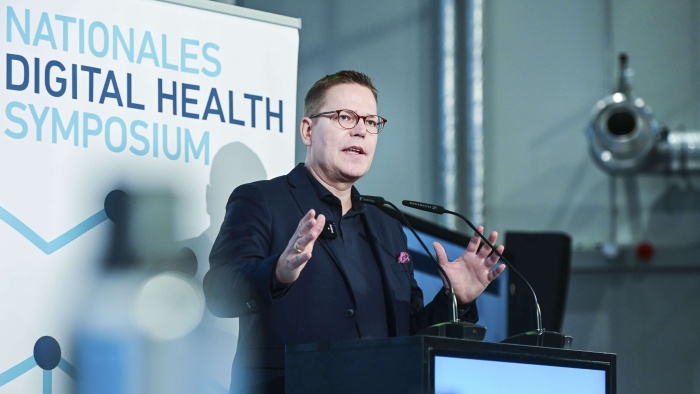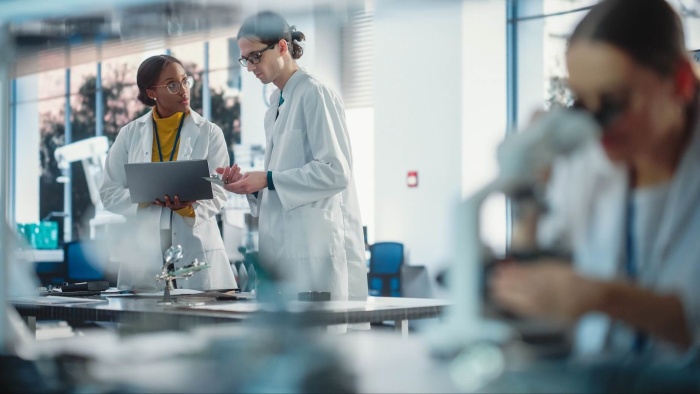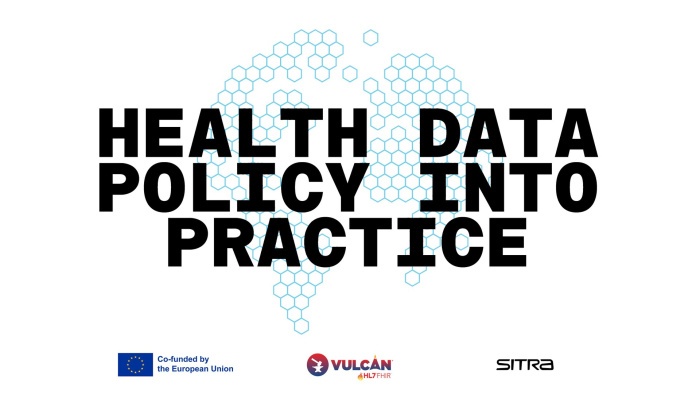Research for better health: TMF annual conference spotlights the importance of translational research
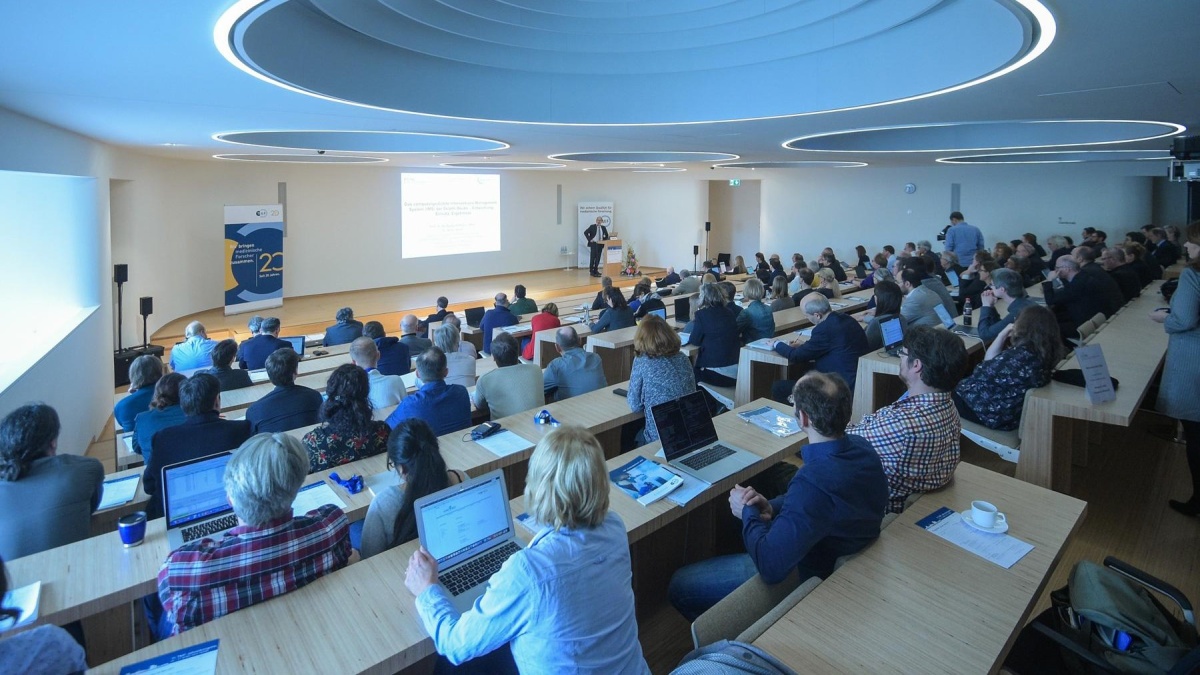
Glance into the auditorium of the German Center for Neurodegenerative Diseases (DZNE) during the opening of the 11th Annual TMF Congress. © TMF/Volkmar Otto
“The relentless rise of major, widespread illnesses, in conjunction with demographic change, makes translational research a critical challenge. Patients above all benefit when findings from research are quickly leveraged to improve day-to-day clinical practice,” explained conference chair Professor Wolfgang Hoffmann (Greifswald University Hospital), upon opening TMF’s annual conference. The event took place on 20 March 2019, in the spacious lecture hall of the German Center for Neurodegenerative Diseases (DZNE), in Bonn’s Venusberg district. Hoffmann underlined the need to overcome the boundaries between individual disciplines and fields – and to create a culture of data sharing. He continued: “Particularly for translation, that means going out, looking around, and listening to where there are unresolved needs in healthcare – and addressing them in a targeted way through research.” To this end, medical researchers need to be familiar with the practical imperatives and constraints of real-world patient care, and to actively involve patients in research.
Within the scope of the 11th TMF annual conference, medical researchers, IT professionals, biobank experts, veterinarians, and representatives of German research funding organisations discussed requirements for successful translational research in Germany. Currently, it takes considerable time and resources to transfer new medical diagnostics and treatment methods from the lab to widespread use. The aim of translational research is to accelerate this conversion process, allowing patients to benefit faster from new insights. However, knowledge translation is complex, and presents scientists with significant practical challenges. It requires an interdisciplinary approach at the interfaces between research, hospitals and other healthcare organisations – with focus placed first and foremost on people. Moreover, digital transformation and personalisation are considered key to progress.
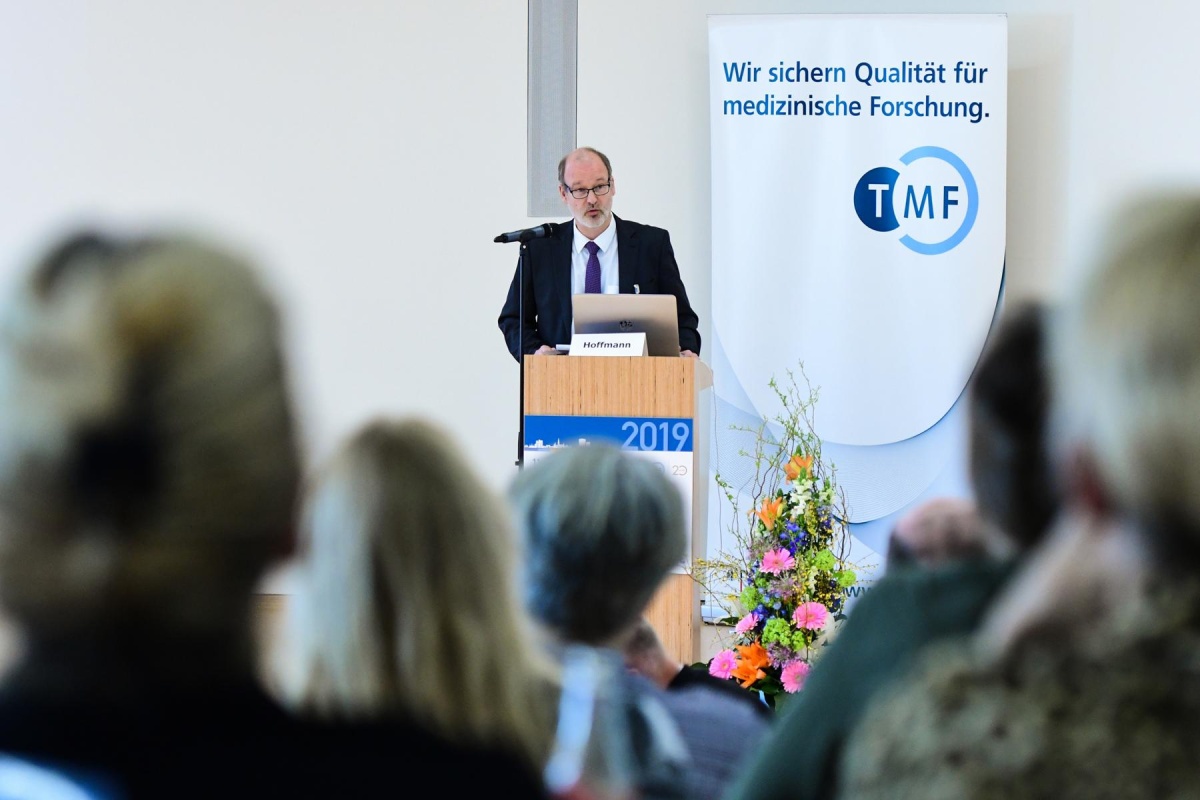
Congress President and TMF Board member Prof. dr. Wolfgang Hoffmann (University Medical Center Greifswald) answered questions about the potential of translation for patient health on TMF Annual Congress 2019. Source: TMF / Volkmar Otto © TMF e.V.
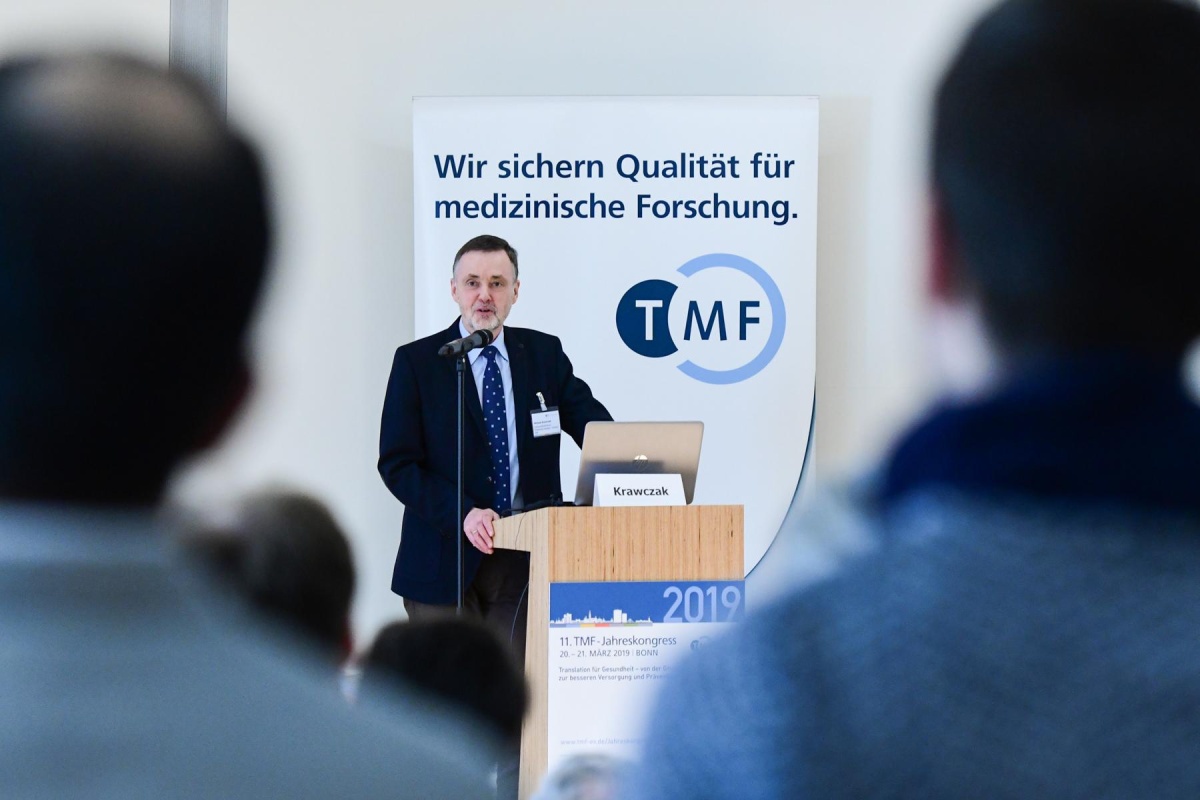
Prof. Dr. Michael Krawczak, University Medical Center Schleswig-Holstein, Campus Kiel. © TMF e.V.
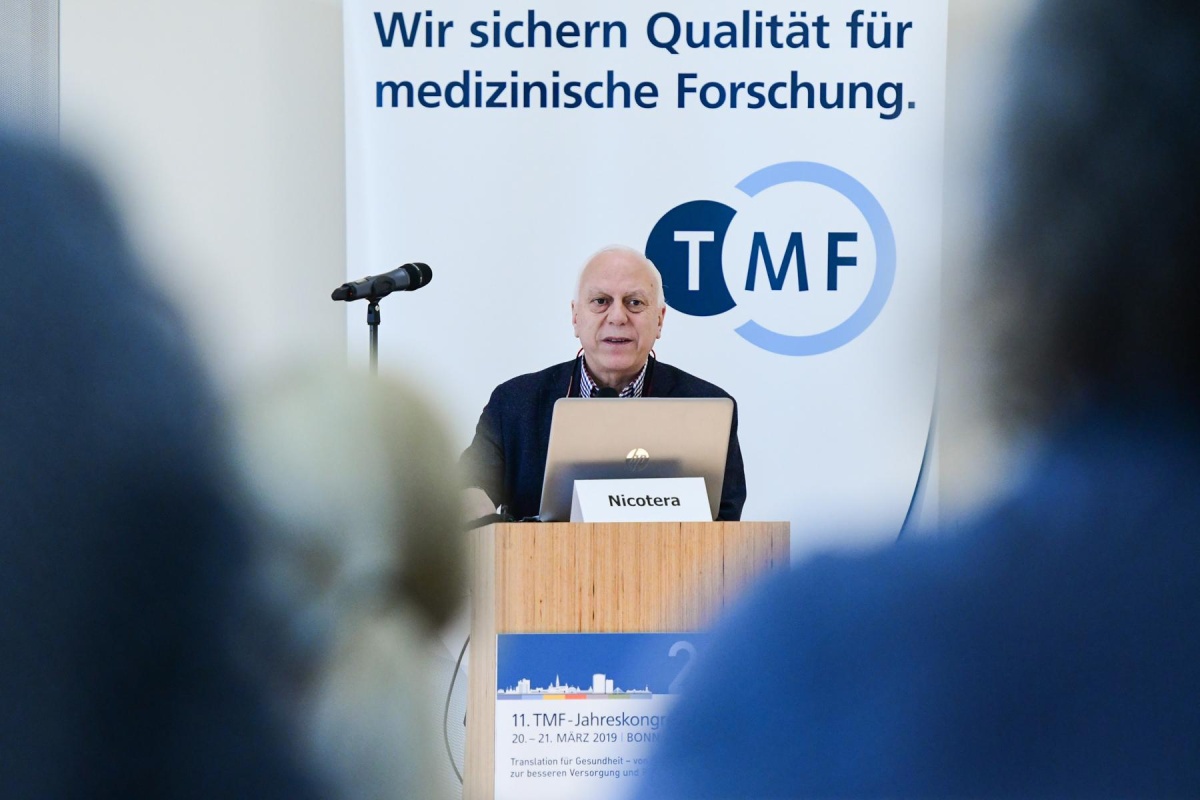
The Scientific Board of the German Center for Neurodegenerative Diseases Dr. Pierluigi Nicotera welcomed the guests of the 11.TMF annual congress on Bonn's Venusberg. Source: TMF / Volkmar Otto © TMF/Volkmar Otto
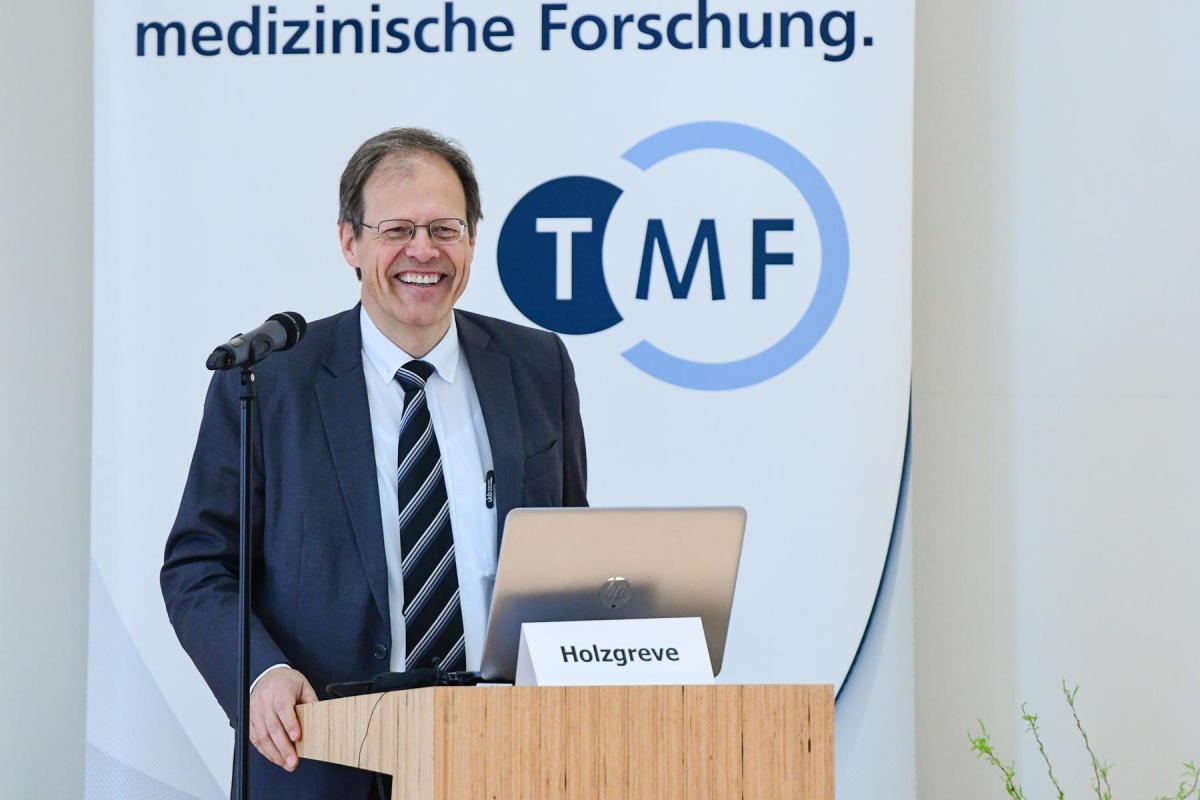
Prof. Dr. Dr. h. c. mult. Wolfgang Holzgreve, University Hospital Bonn. © TMF e.V.
At the meeting, host Professor Pierluigi Nicotera (DZNE) addressed the approximately 160 attendees, and described the growing trend towards research on – and using – large volumes of data. “International technology corporations are investing heavily in this area, and are beginning to reap the benefits of personalised healthcare data. Publicly funded research must keep pace and make its own concrete contributions to better patient care.” In this context, he emphasised, cooperation between researchers at national and international level has a central role. DZNE and TMF are working hand-in-hand towards this goal.
Krawczak noted:
The rapid translation of new, fundamental findings from medical research to healthcare tailored to the individual is a great challenge. Establishing the groundwork for personalised medicine requires the involvement of diverse fields of expertise, as well as Germany-wide sharing of research data.
For Professor Michael Krawczak (University Medical Center Schleswig-Holstein, Kiel Campus), Chair of TMF’s Board of Directors, the high number of attendees from German medical research associations at this year’s conference underscored the topic’s importance: “The rapid translation of new, fundamental findings from medical research to healthcare tailored to the individual is a great challenge. Establishing the groundwork for personalised medicine requires the involvement of diverse fields of expertise, as well as Germany-wide sharing of research data.”
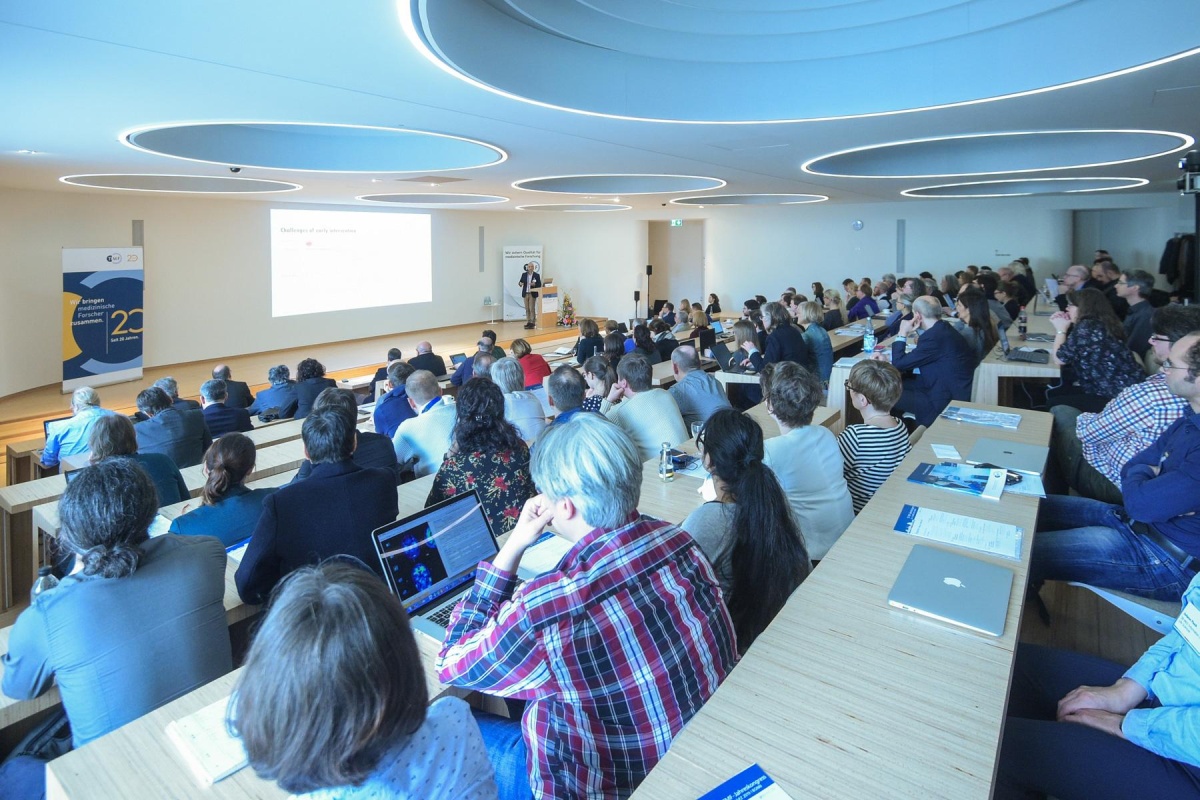
Prof. Dr. Emrah Düzel, University Medical Center Magdeburg. © TMF e.V.
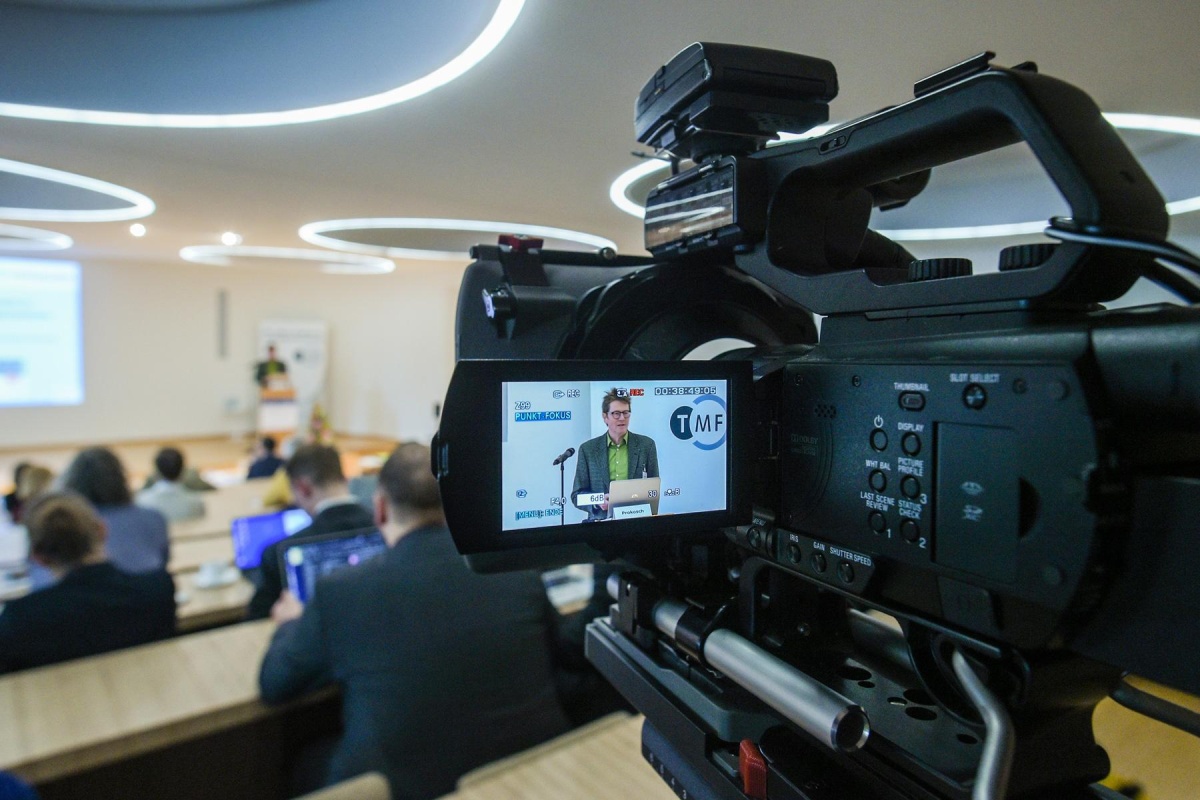
Prof. Dr. Hans-Ulrich Prokosch, University Hospital Erlangen-Nuremberg. © TMF e.V.
The added value of cross-site/cross-organisation collaboration has been part of TMF’s DNA since its foundation over 20 years ago. Innovative healthcare models, including two presented at the meeting – the Baden-Württemberg Center for Personalised Medicine, and the DelpHi study computer-aided intervention management system to improve care for dementia patients in Mecklenburg-Western Pomerania – make a meaningful contribution to timely implementation of nationwide personalised diagnoses and treatment strategies.
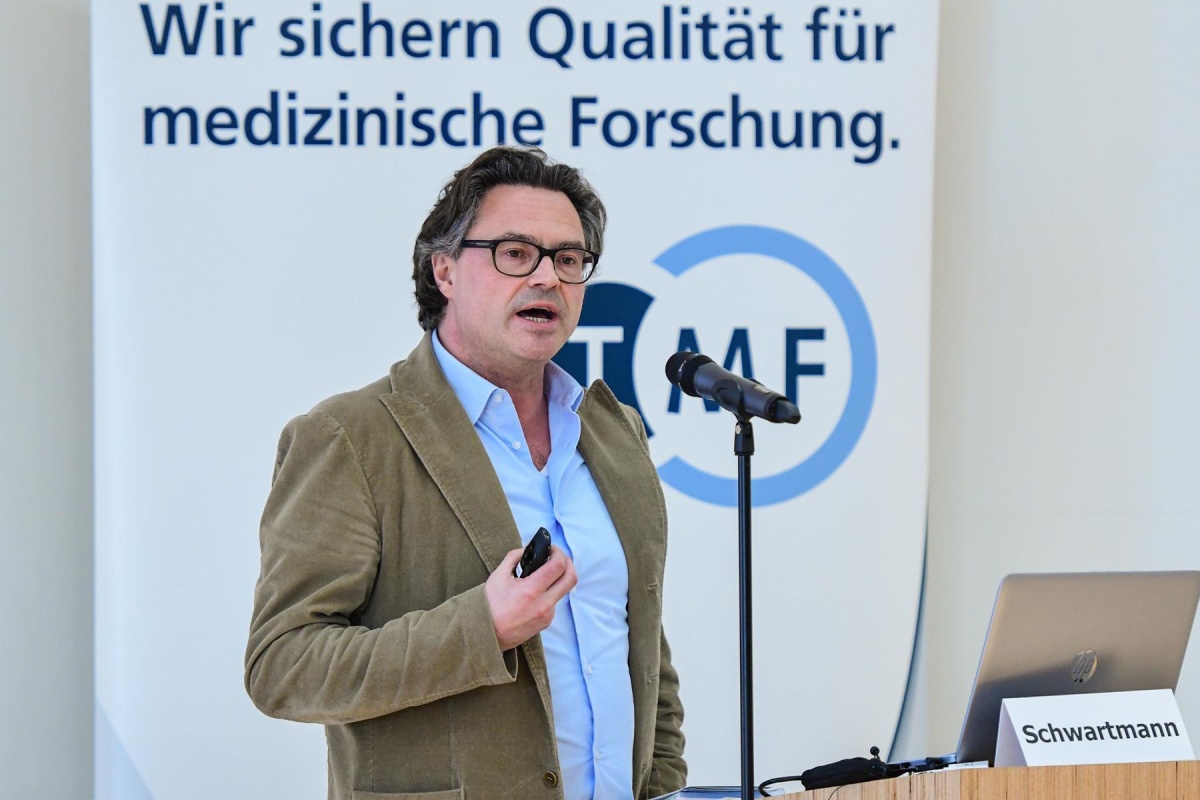
Prof. Dr. Rolf Schwartmann, Technical University Köln. © TMF e.V.
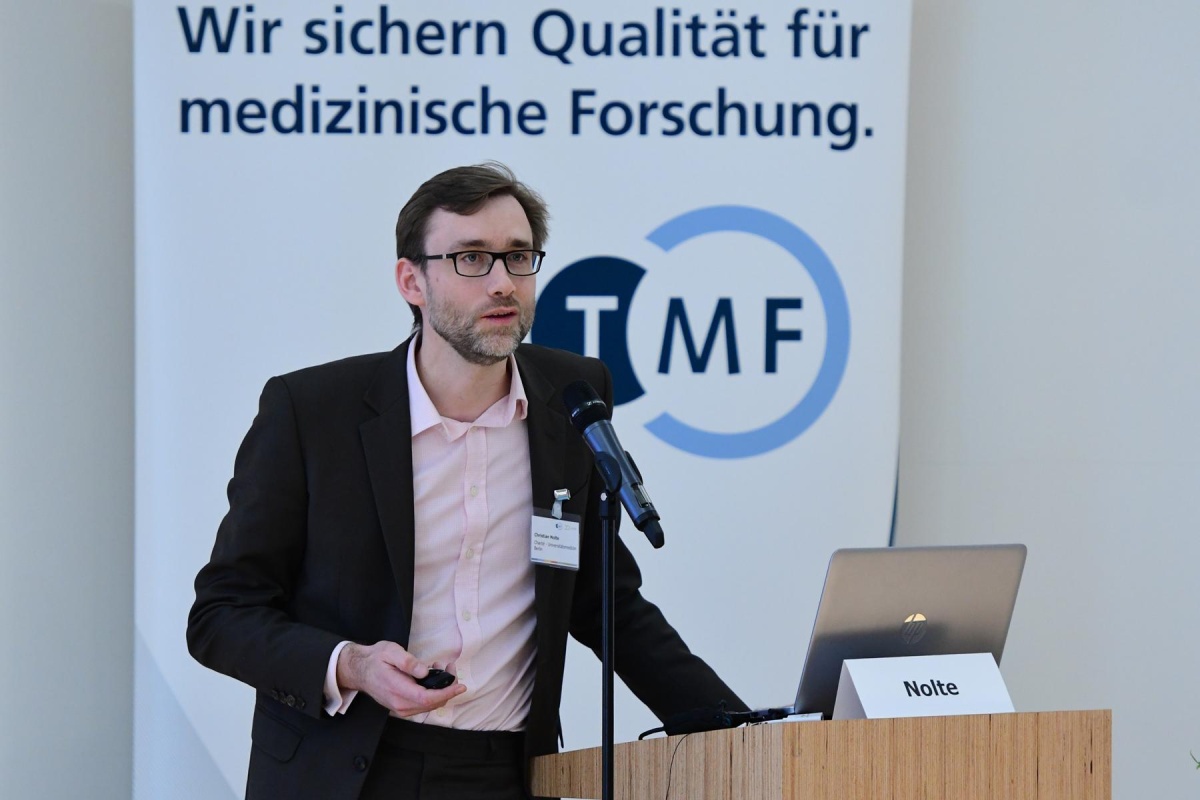
Prof. Dr. Christian Nolte, Charité – University Medical Center Berlin. © TMF e.V.
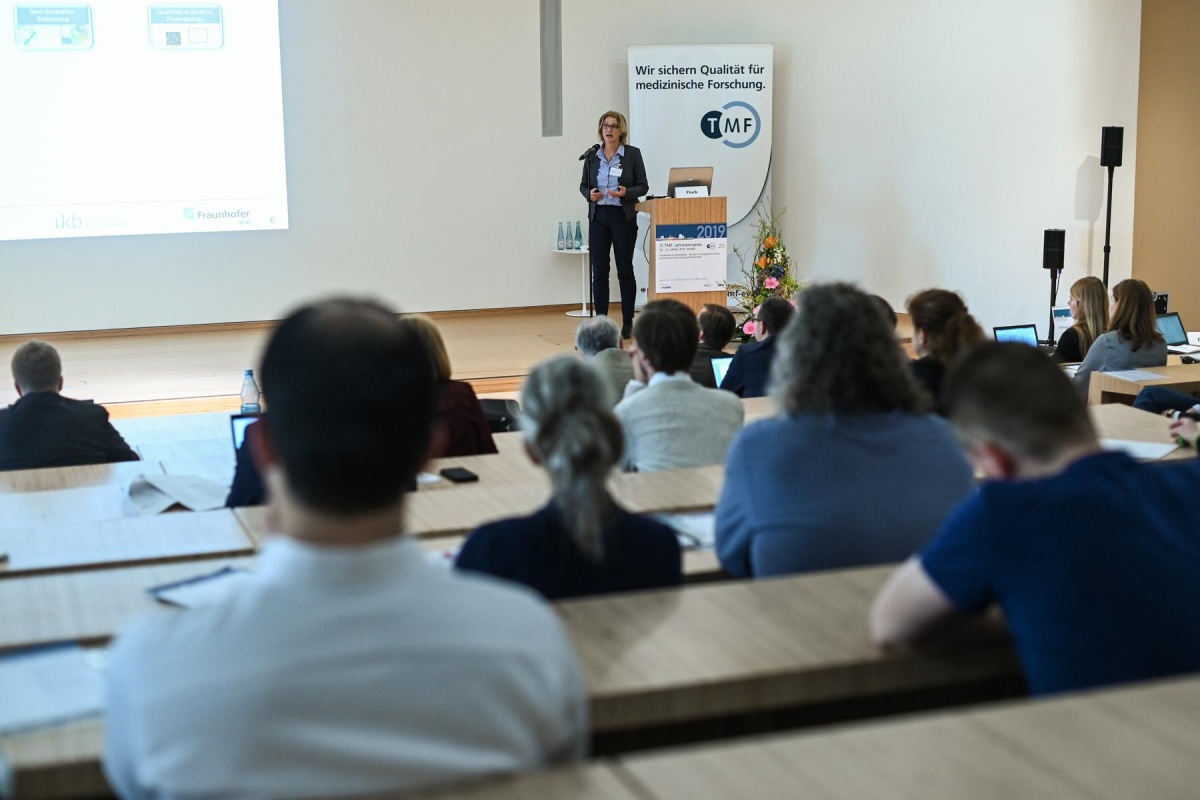
Prof. Dr. Juliane Fluck, University Bonn. © TMF e.V.
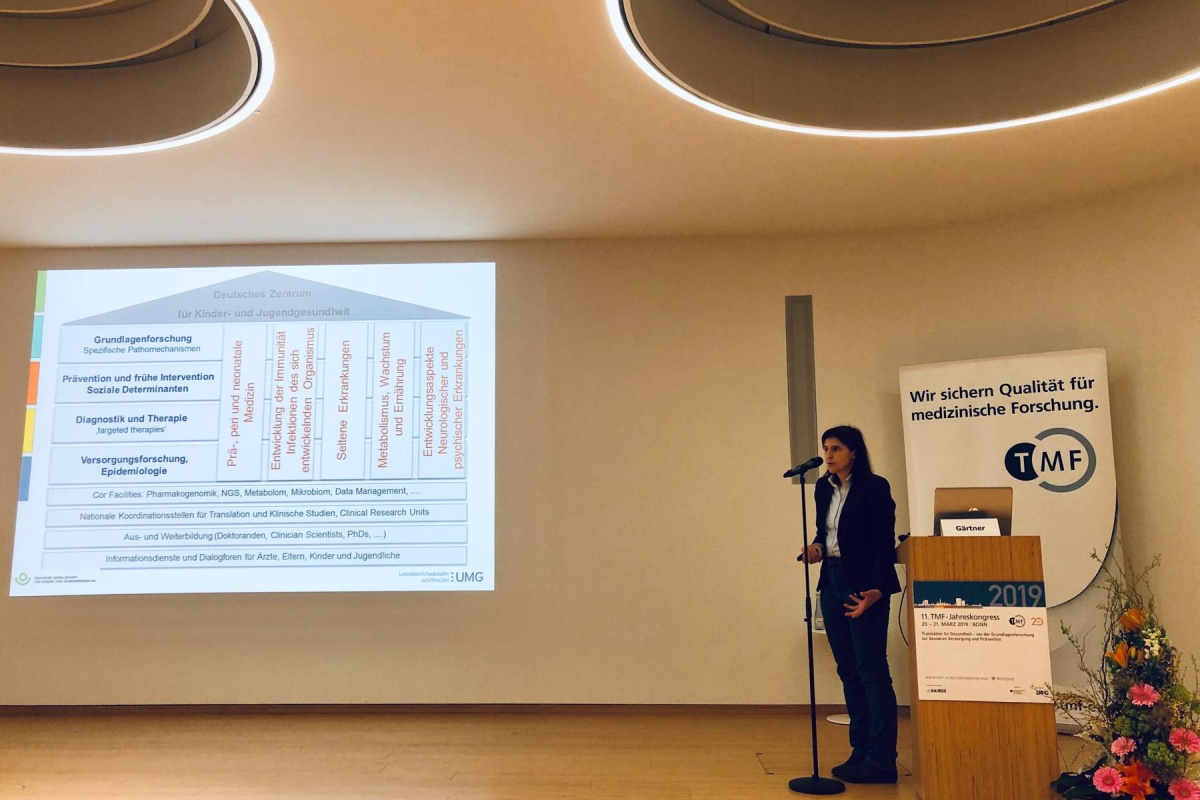
Prof. Dr. Jutta Gärtner, University Hospital Göttingen. © TMF e.V.
The conference highlighted a number of overarching topics, including data protection, semantic data integration, quality assurance and network management. Above all, the agenda was characterised by many examples of best-practice translational research. Digital tools and resources for patient-oriented research – such as the NEOTIV app for early detection of Alzheimer’s, developed in cooperation with DZNE – enable the integration of data captured by patients (i.e. citizen science) into scientific knowledge acquisition. In the same vein, Professor Hans-Ulrich Prokosch (University Hospital Erlangen-Nuremberg) called for greater active patient participation in medical research, and presented a concept for a digital patient research data portal.
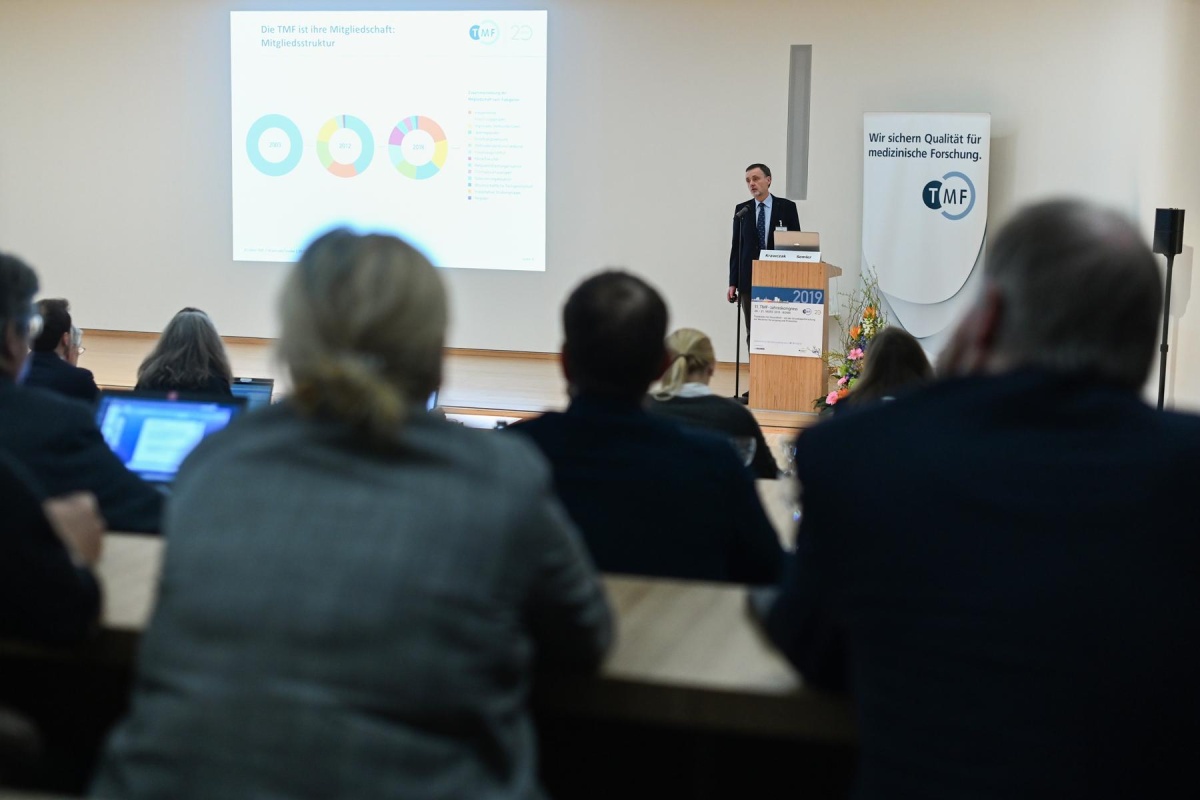
Prof. Dr. Michael Krawczak, University Hospital Schleswig-Holstein, Campus Kiel. © TMF e.V.
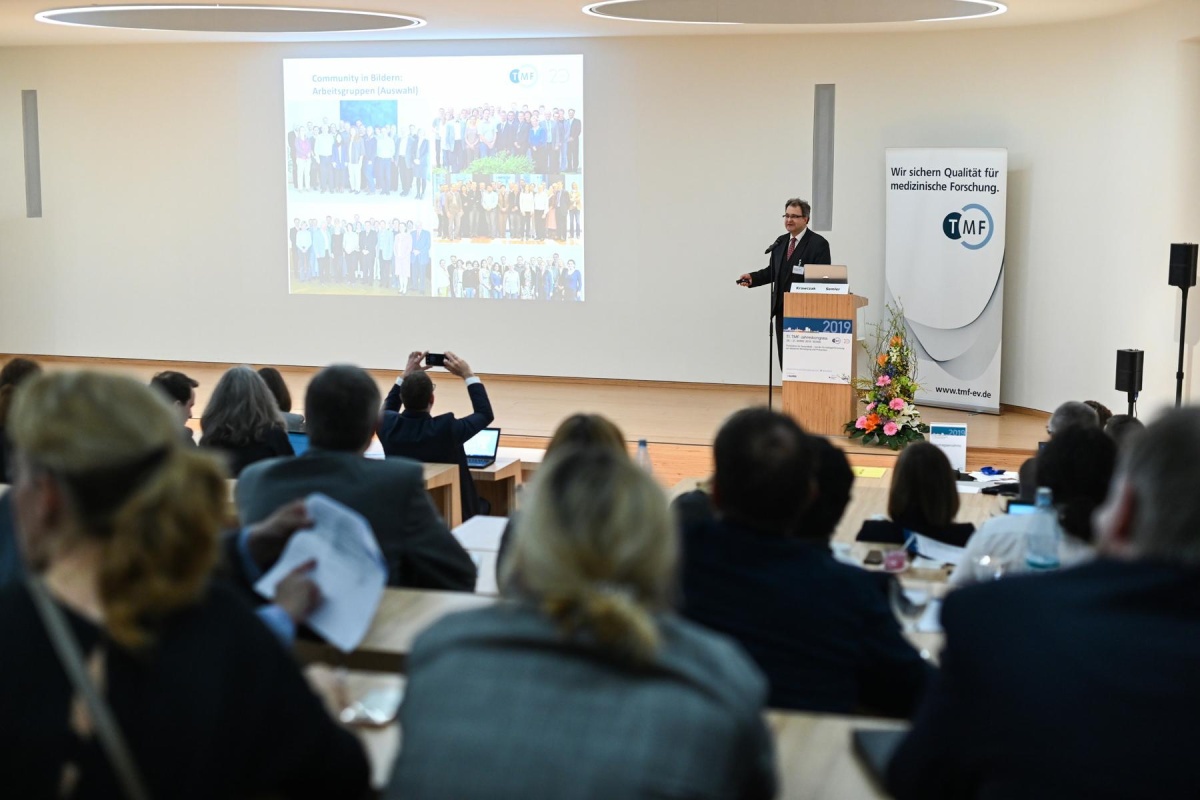
Sebastian C. Semler, TMF Managing Director. © TMF e.V.
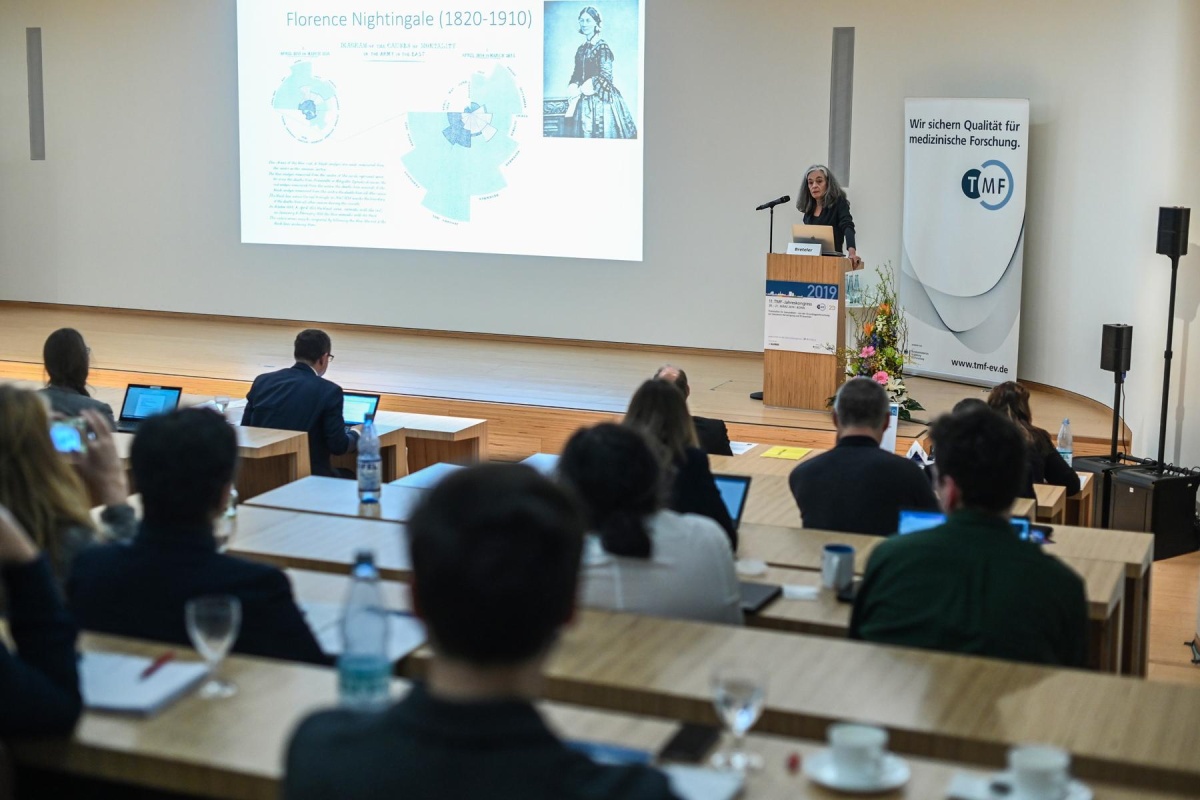
Prof. Dr. Dr. Monique M.B. Breteler, DZNE. © TMF e.V.
In addition, the German Federal Government is making accelerated knowledge translation a focus of its recently adopted Health Research Framework Programme. The foundation of two new German centres will help bring research and care closer together. Professor Jutta Gärtner (University Medical Center Göttingen) reported on the current planning status of the new German Centre for Paediatrics and Adolescent Medicine. Patient-oriented translational research is key to the successful treatment of, for example, rare diseases that often first present during childhood or teenage years. A lack of causal treatment options often means these “orphan” diseases (i.e. defined by the US Food and Drug Administration as conditions affecting fewer than 200,000 people nationwide) are still cutting lives short. Translational approaches could offer game-changing opportunities.
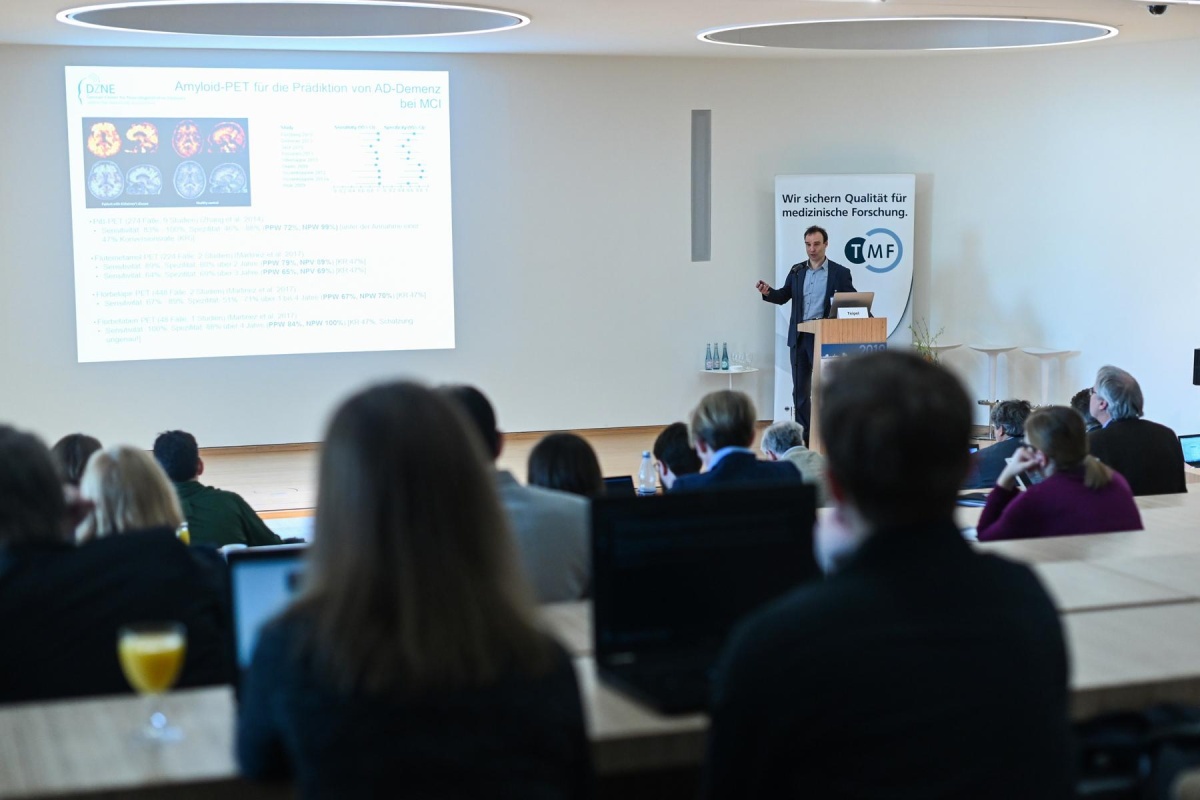
Prof. Dr. Stefan Teipel, University Hospital Rostock. © TMF e.V.
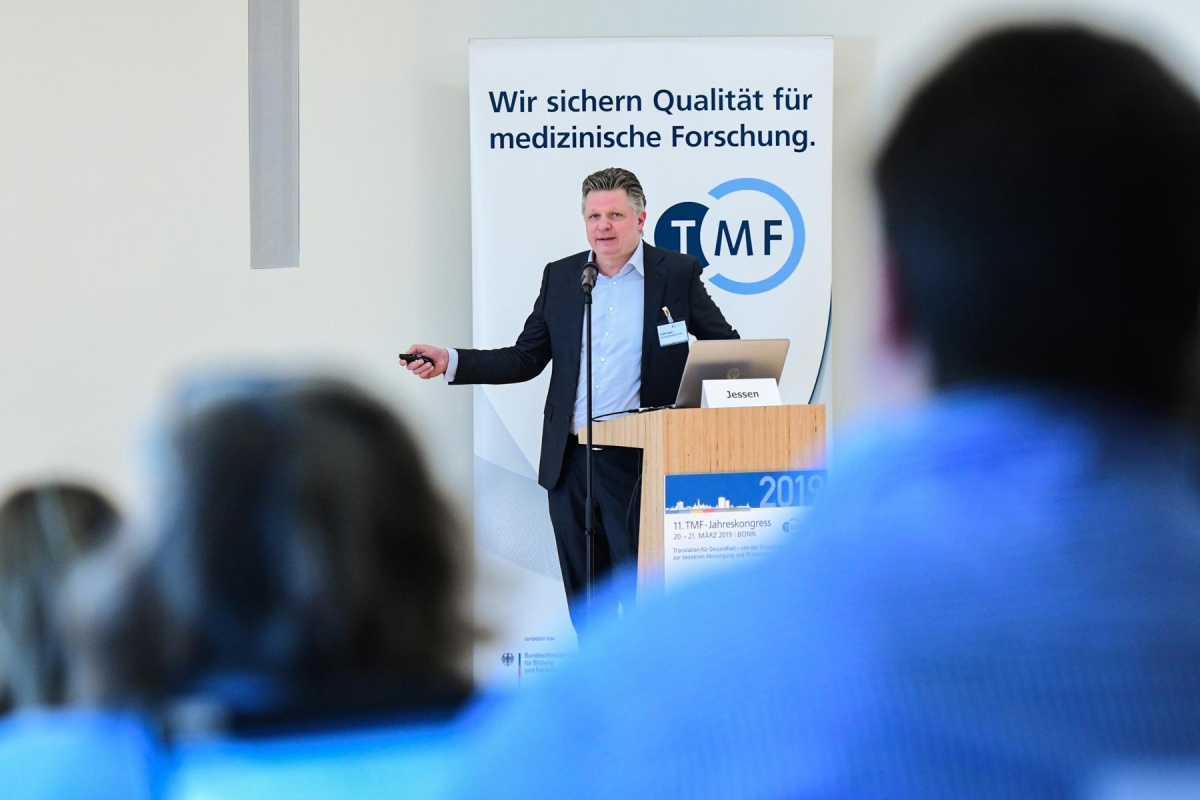
Prof. Dr. Frank Jessen, University Hospital Köln. © TMF e.V.
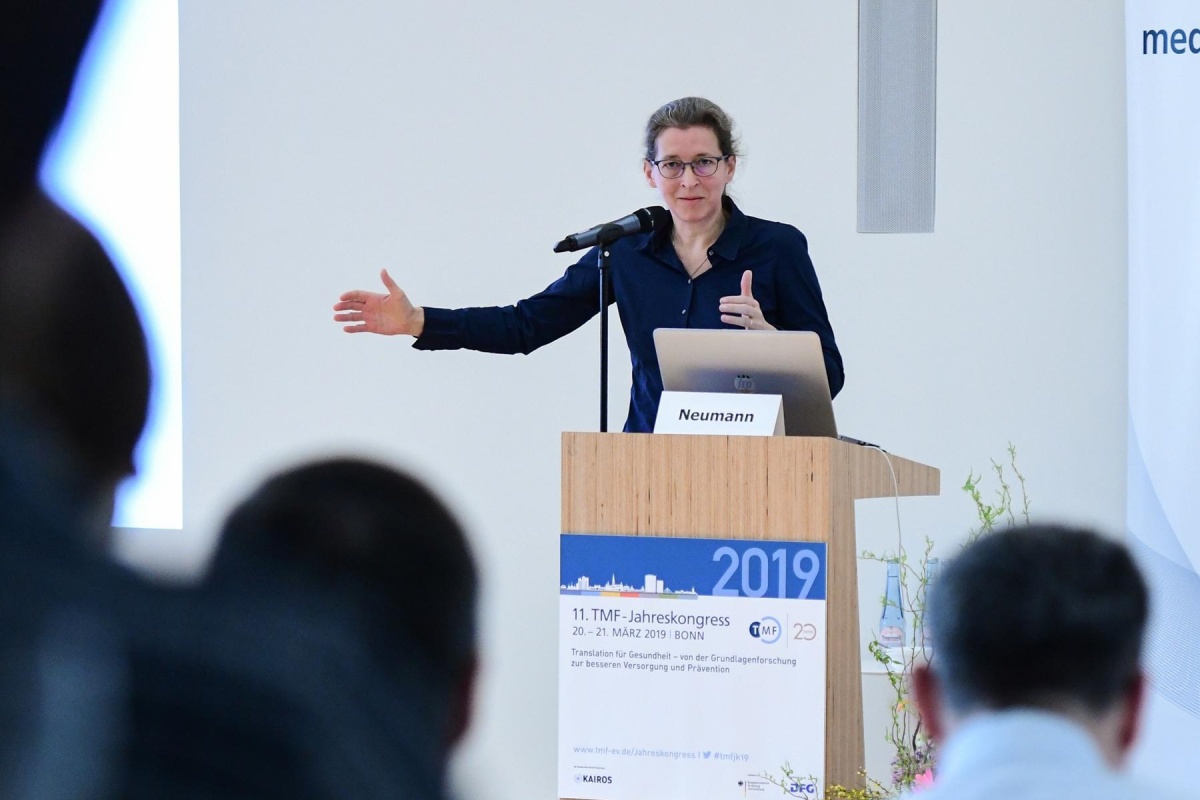
Prof. Dr. Manuela Neumann, DZNE. © TMF e.V.
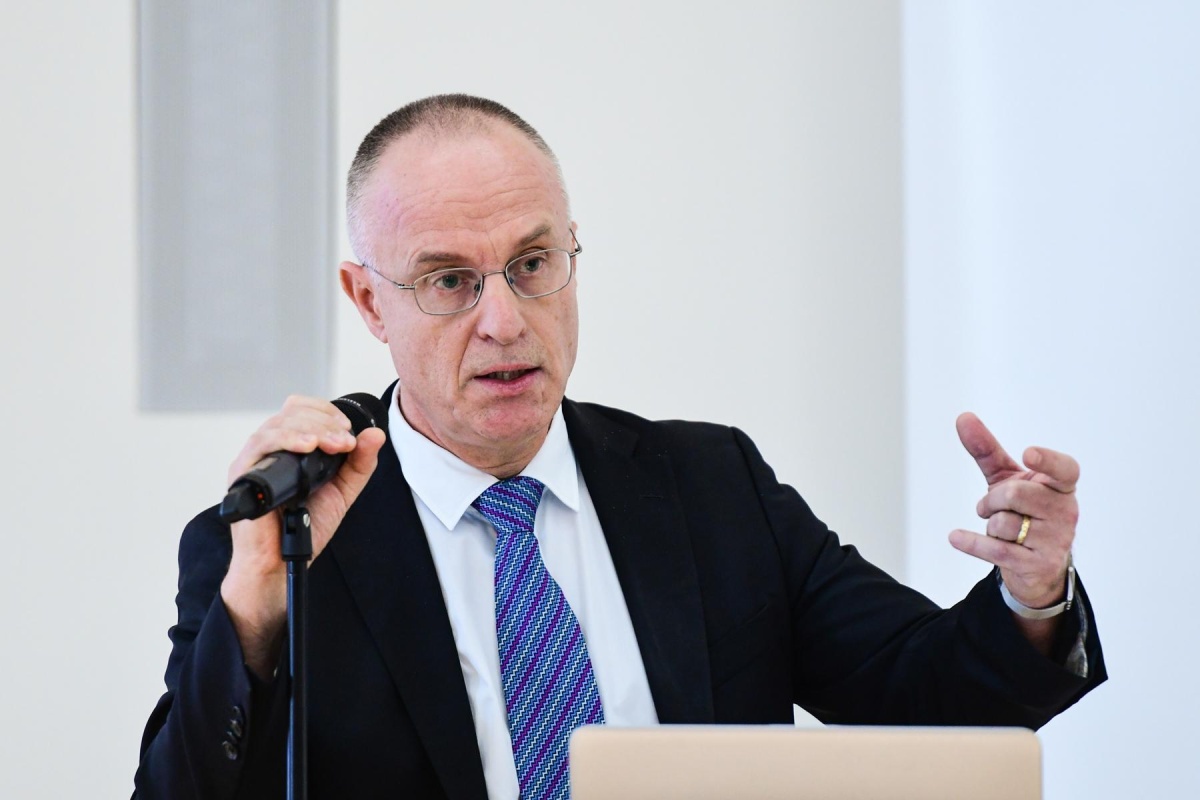
Prof. Dr. Peter Schirmacher, University Hospital Heidelberg. © TMF e.V.

Prof. Dr. Jürgen Wolf, University Hospital Köln. © TMF e.V.
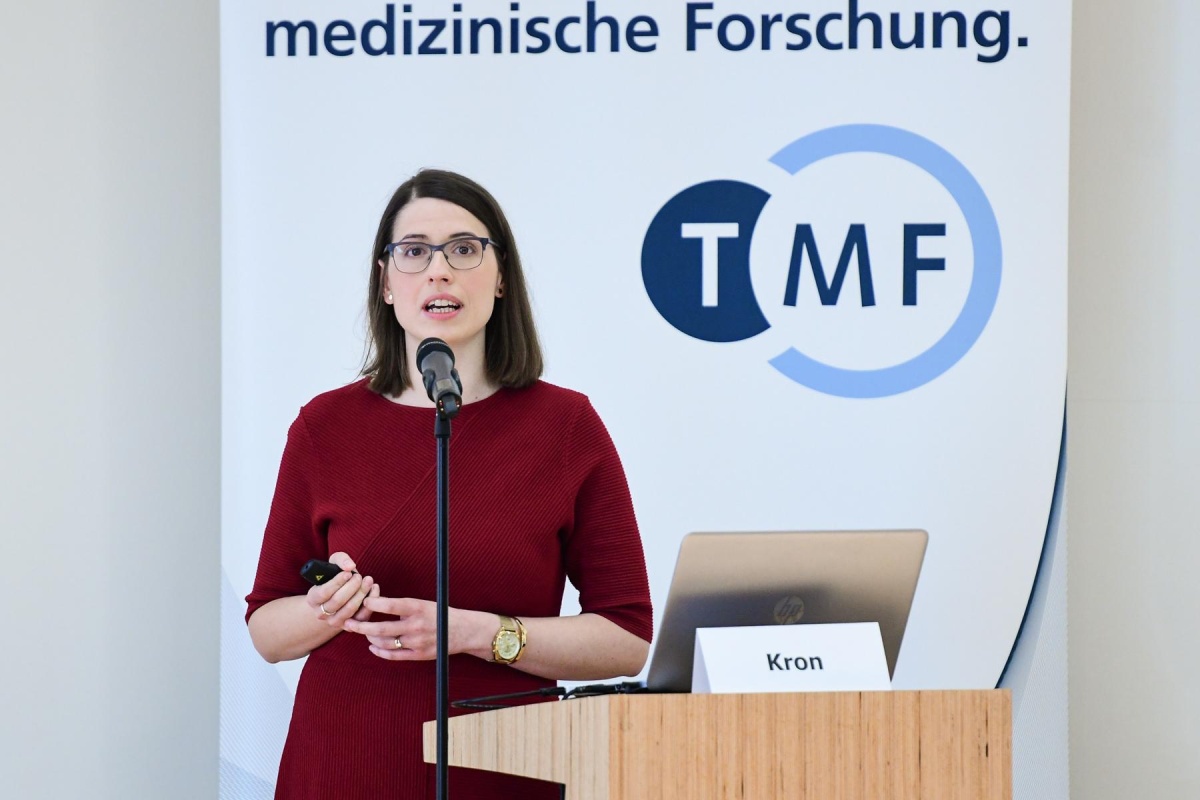
Anna Kron, Managing Director "Nationales Netzwerk Genomische Medizin – Lungenkrebs". © TMF e.V.
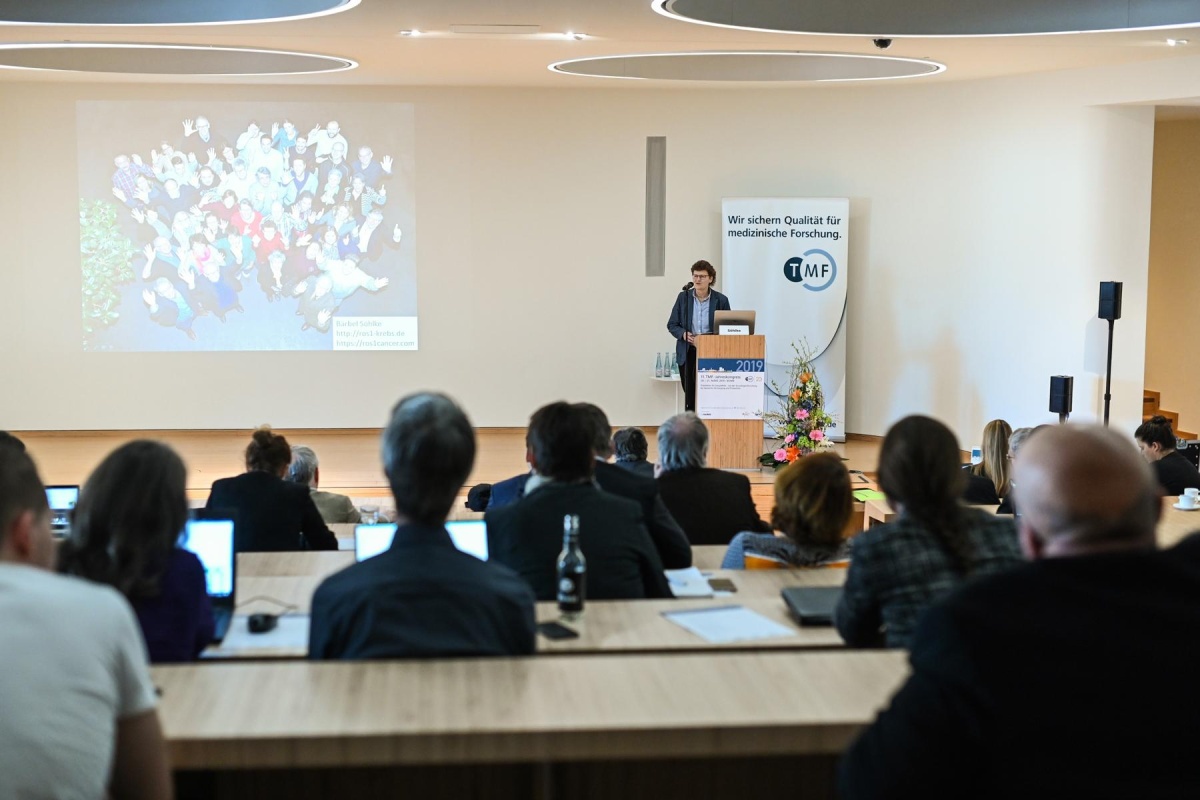
Bärbel Söhlke, ROS1-Support Group. © TMF e.V.
Contact
Wiebke Lesch
Tel. +49 (0)30 22 00 24 731
Stefan Rabe
Tel.: +49 (0)30 22 00 24 723
Mobile: 0173 6141663
Email: presse@tmf-ev.de

Prof. Dr. Jürgen Wolf, Universitätsklinikum Köln. © TMF e.V.

Anna Kron, Geschäftsführerin "Nationales Netzwerk Genomische Medizin – Lungenkrebs". © TMF e.V.

Bärbel Söhlke, ROS1-Selbsthilfegruppe. © TMF e.V.
Gallery
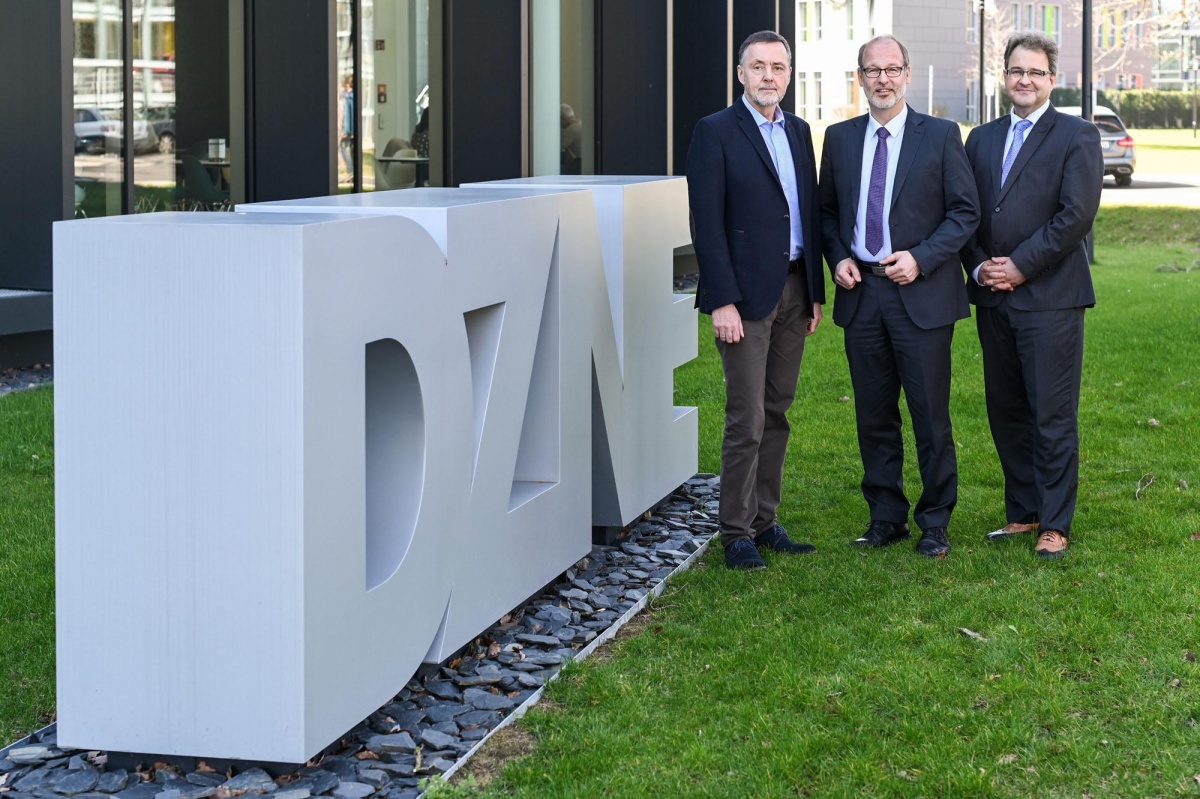
The TMF Annual Congress 2019 took place in the German Center for Neurodegenerative Diseases (DZNE) in Bonn. On March 20 and 21, 2019, around 160 participants discussed strategies and best practice for close cooperation between research and health care. From Left to Right: TMF Chairman Prof. Dr. med. Michael Krawczak (University Hospital Schleswig-Holstein, Campus Kiel), Congress President Prof. Dr. med. Wolfgang Hoffmann (University Medicine Greifswald), TMF Managing Director Sebastian C. Semler. Source: TMF / Volkmar Otto © TMF/Volkmar Otto
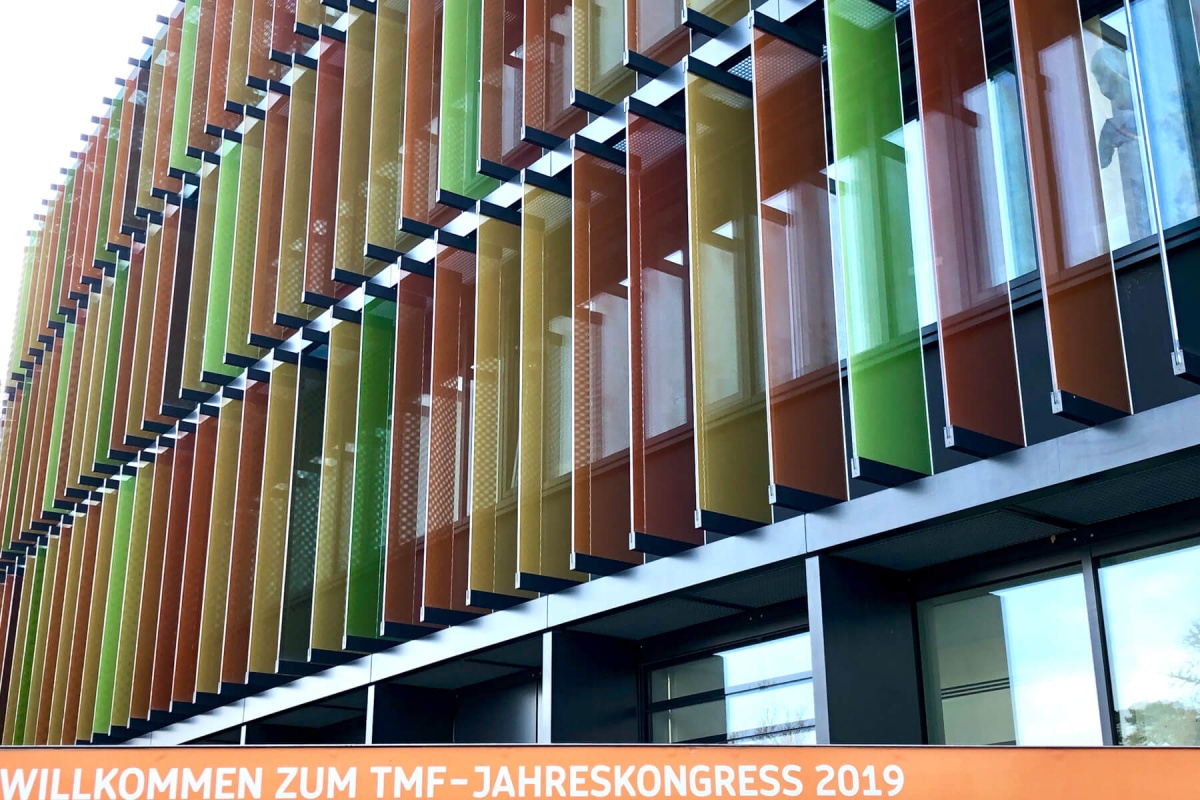
© TMF e.V.
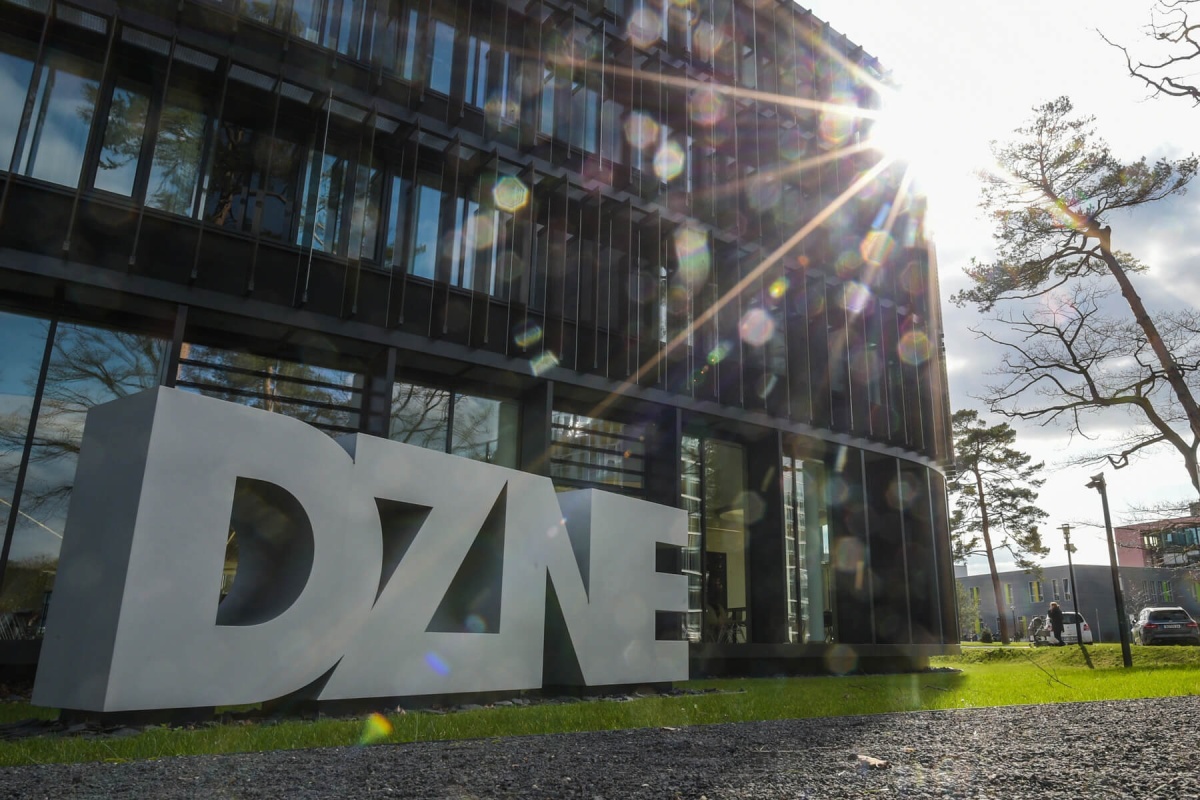
© TMF e.V.
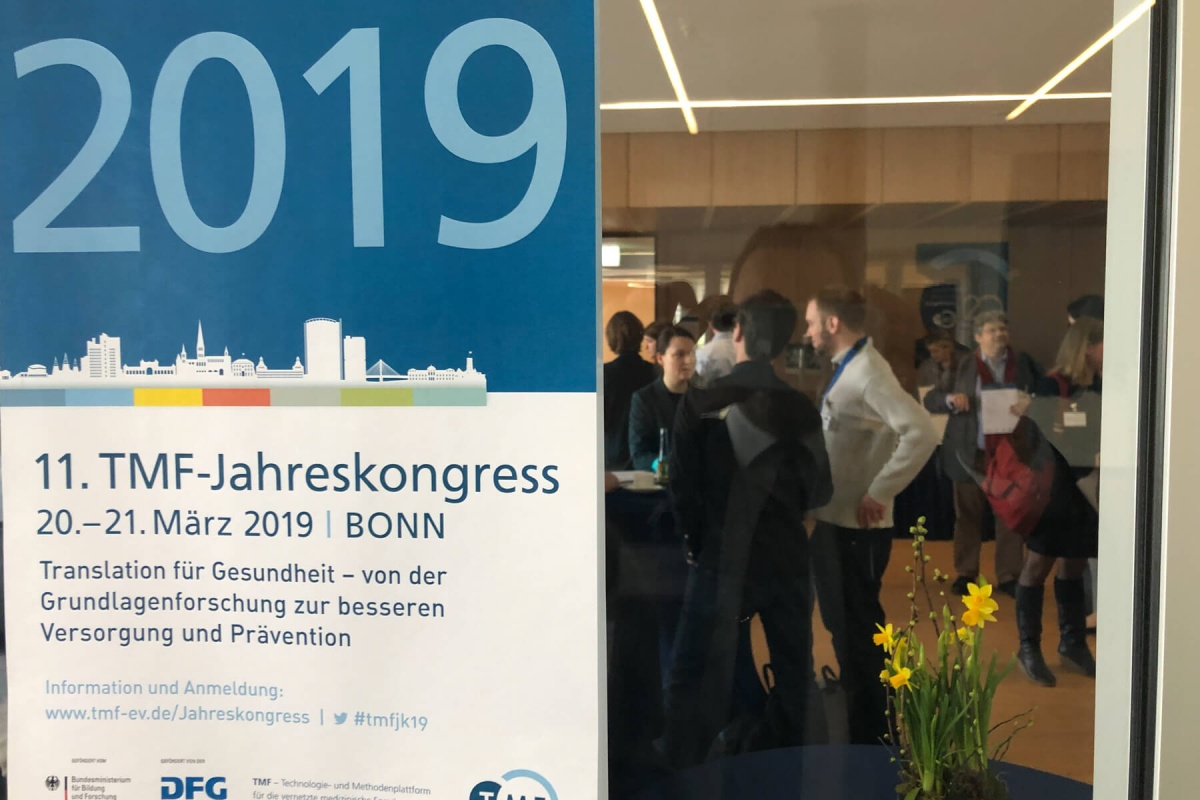
© TMF e.V.
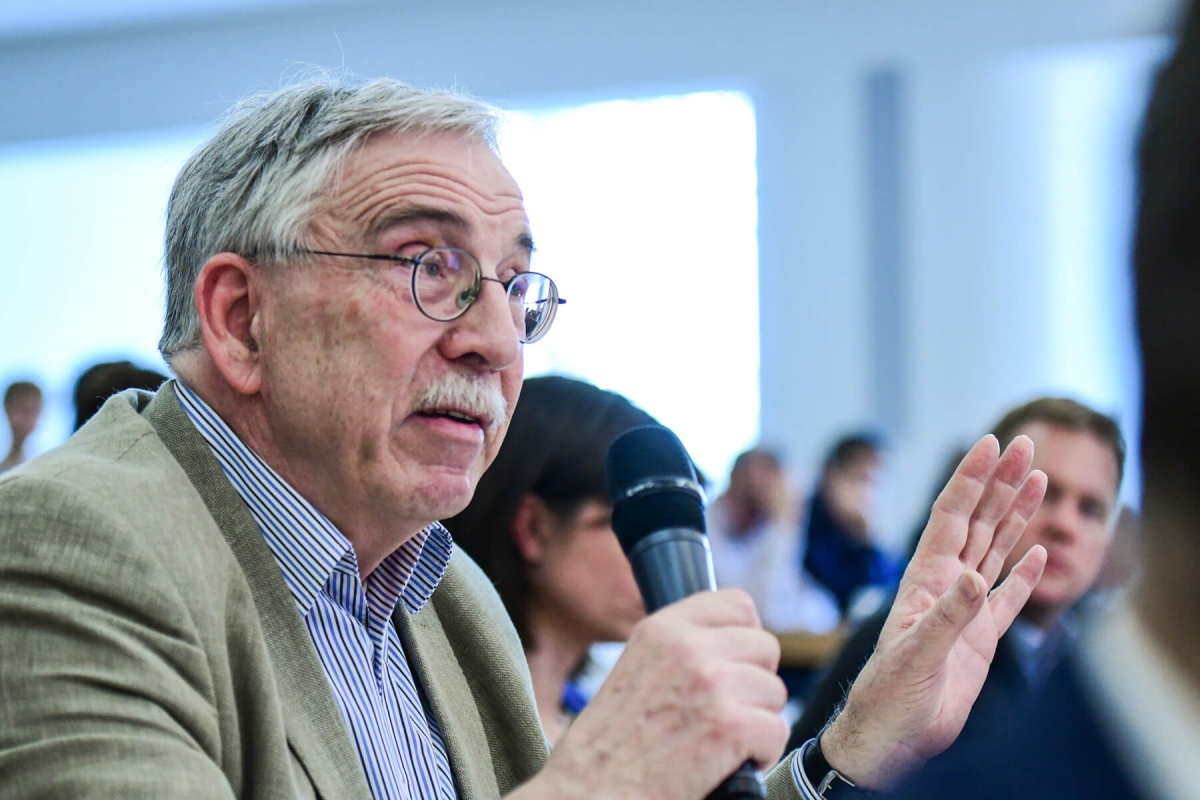
© TMF e.V.
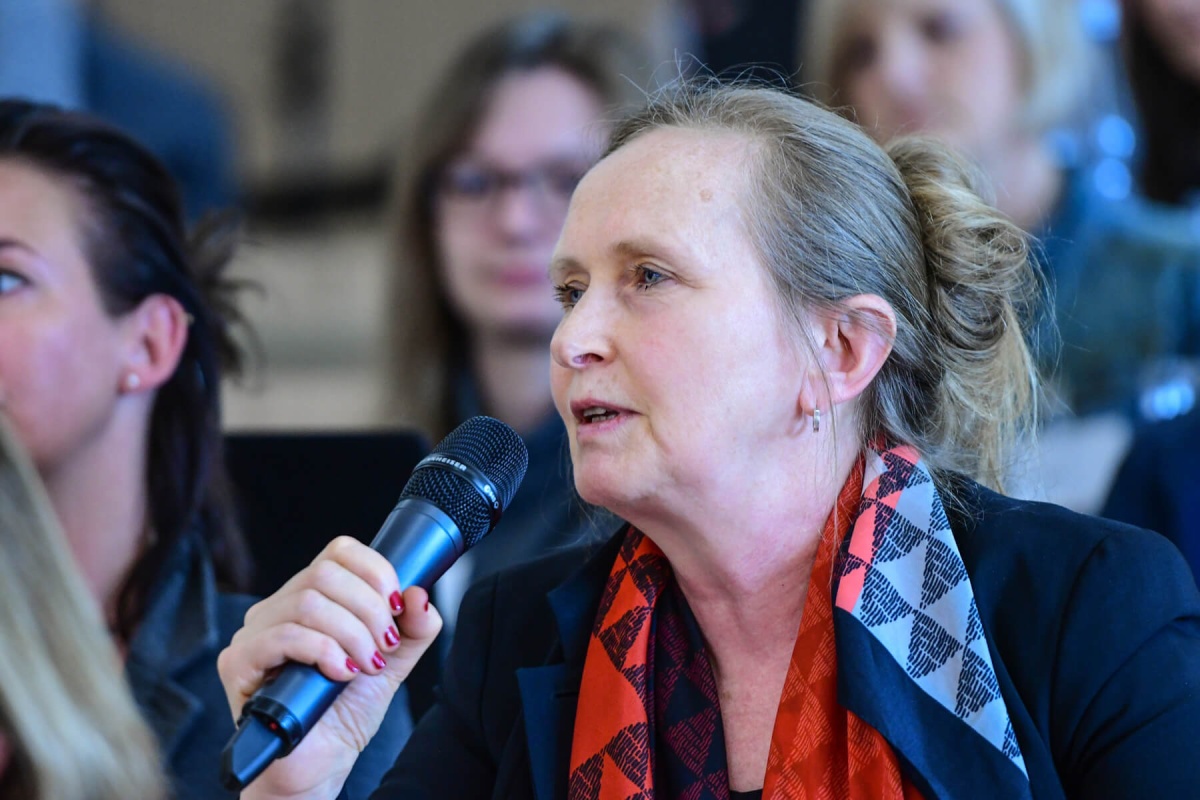
© TMF e.V.
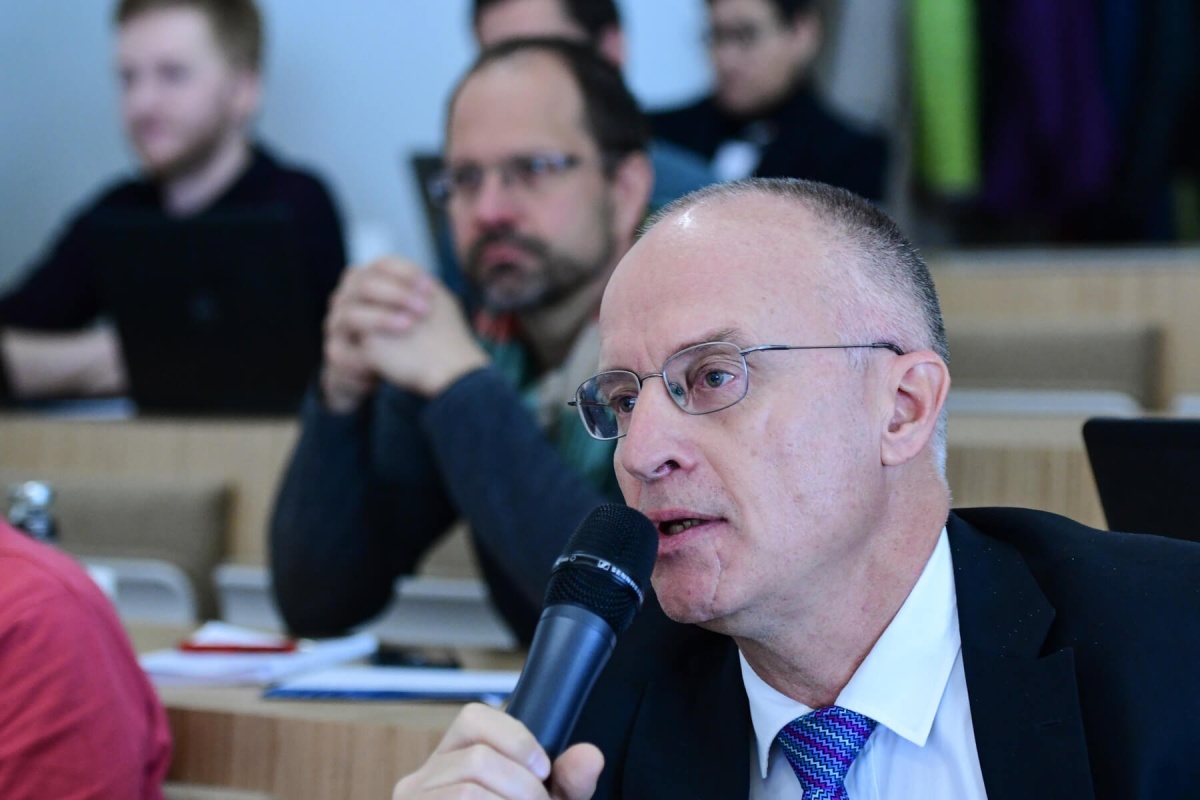
© TMF e.V.
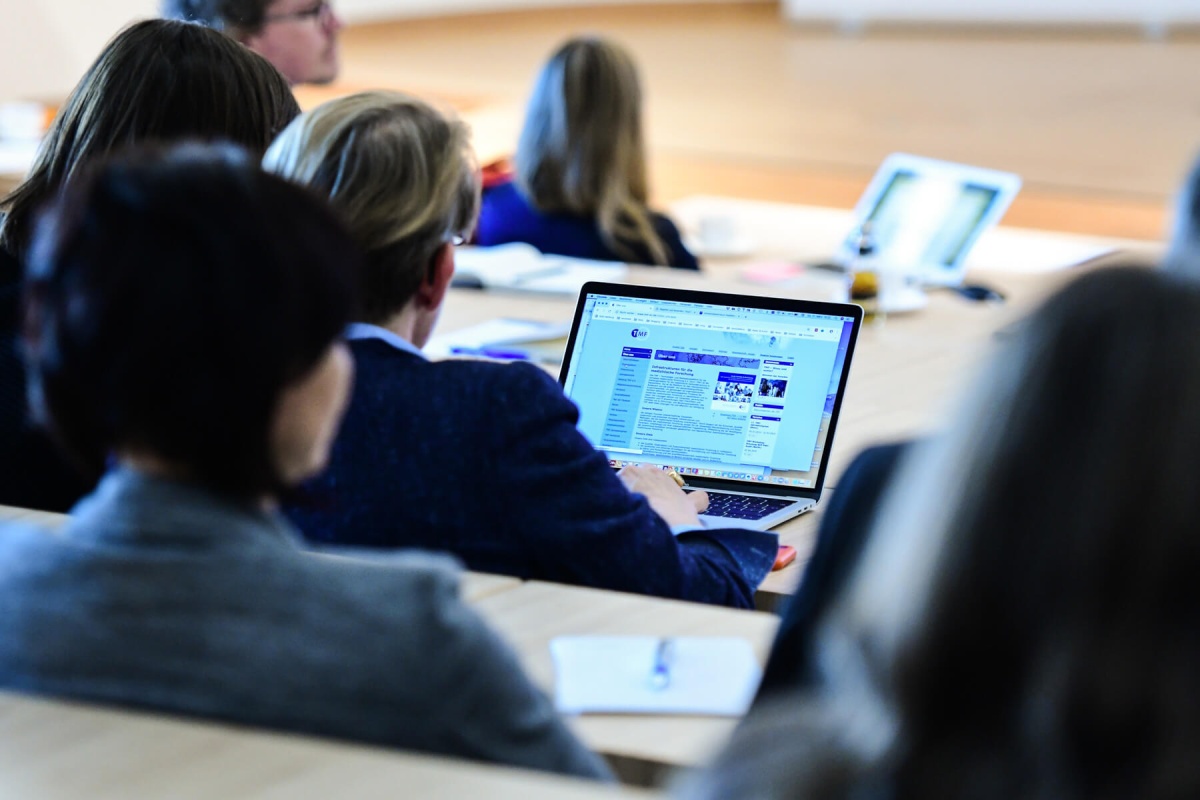
© TMF e.V.
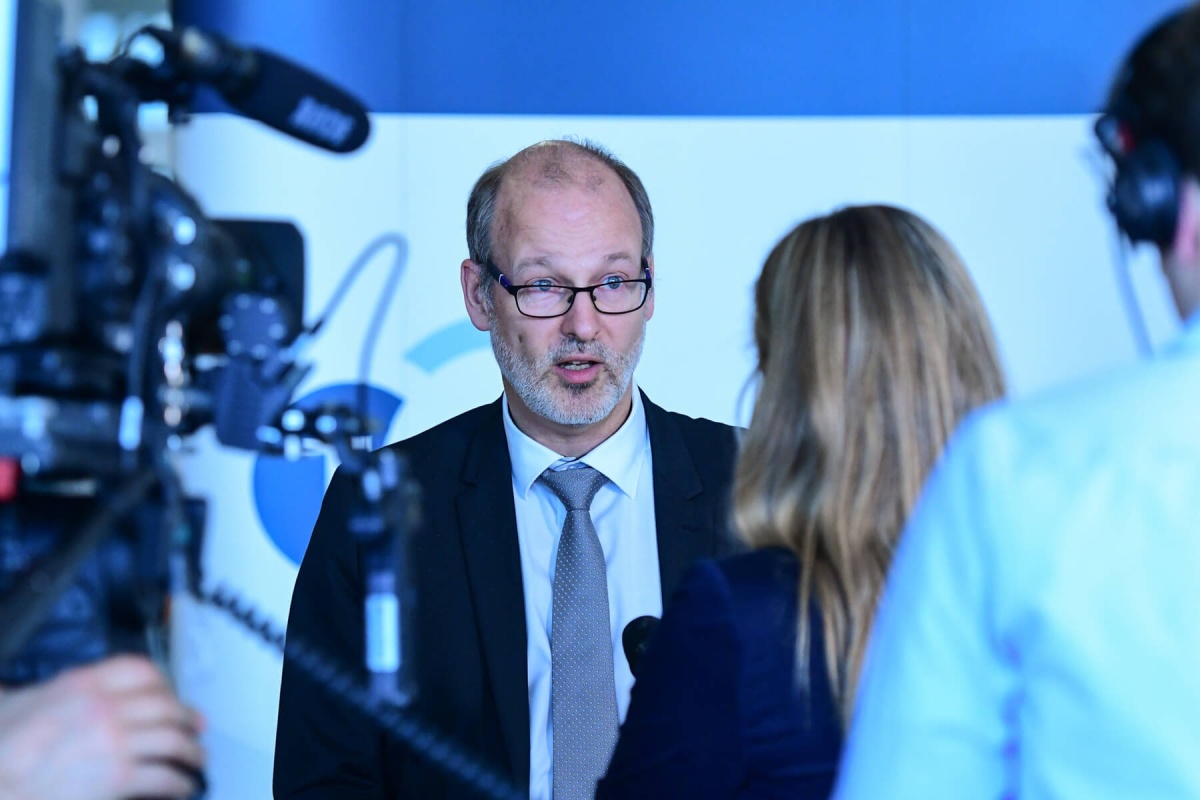
Congress President and TMF Board member Prof. dr. Wolfgang Hoffmann (University Medical Center Greifswald) answered questions about the potential of translation for patient health on TMF Annual Congress 2019. Source: TMF / Volkmar Otto © TMF/Volkmar Otto
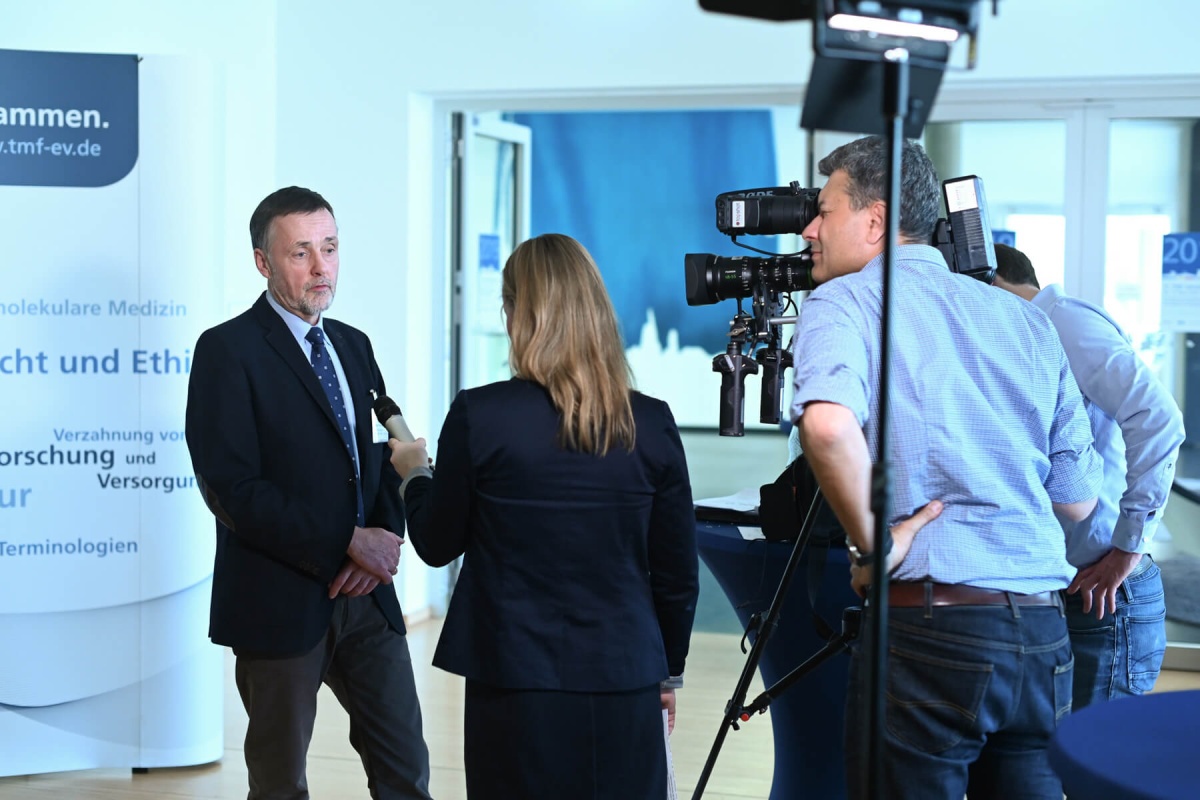
© TMF e.V.
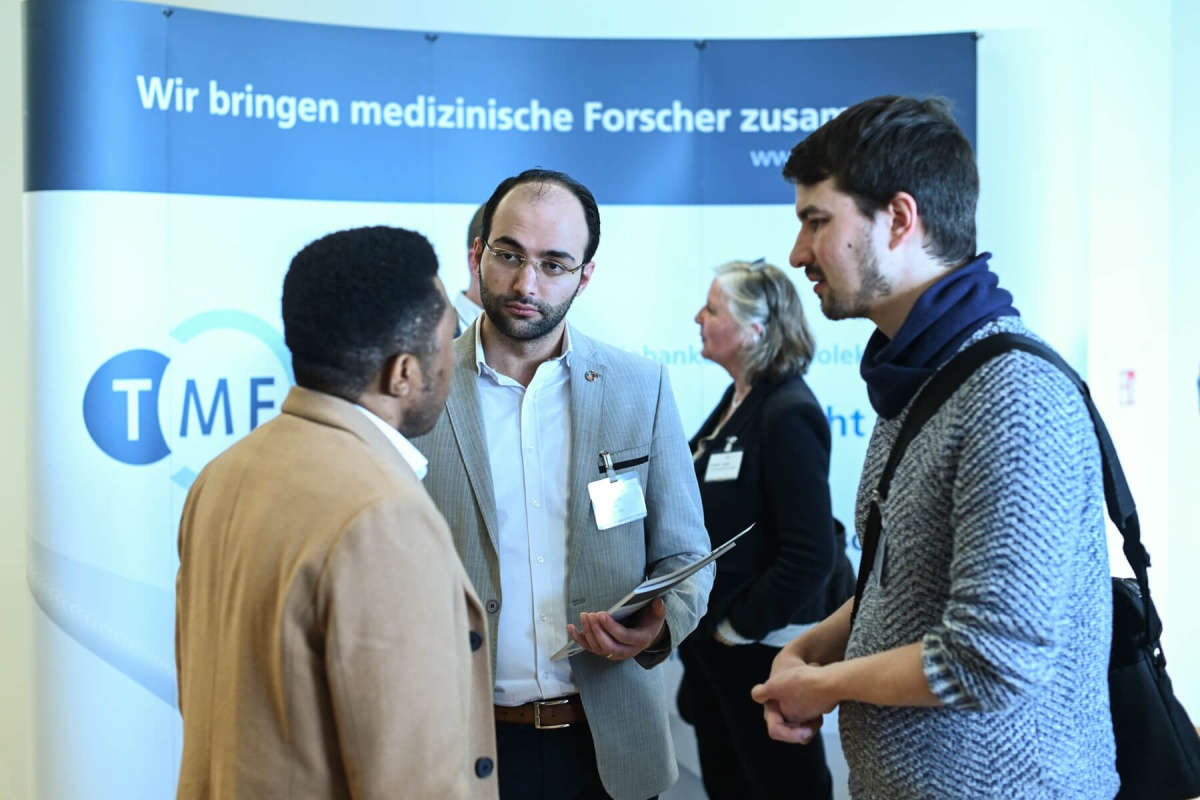
© TMF e.V.
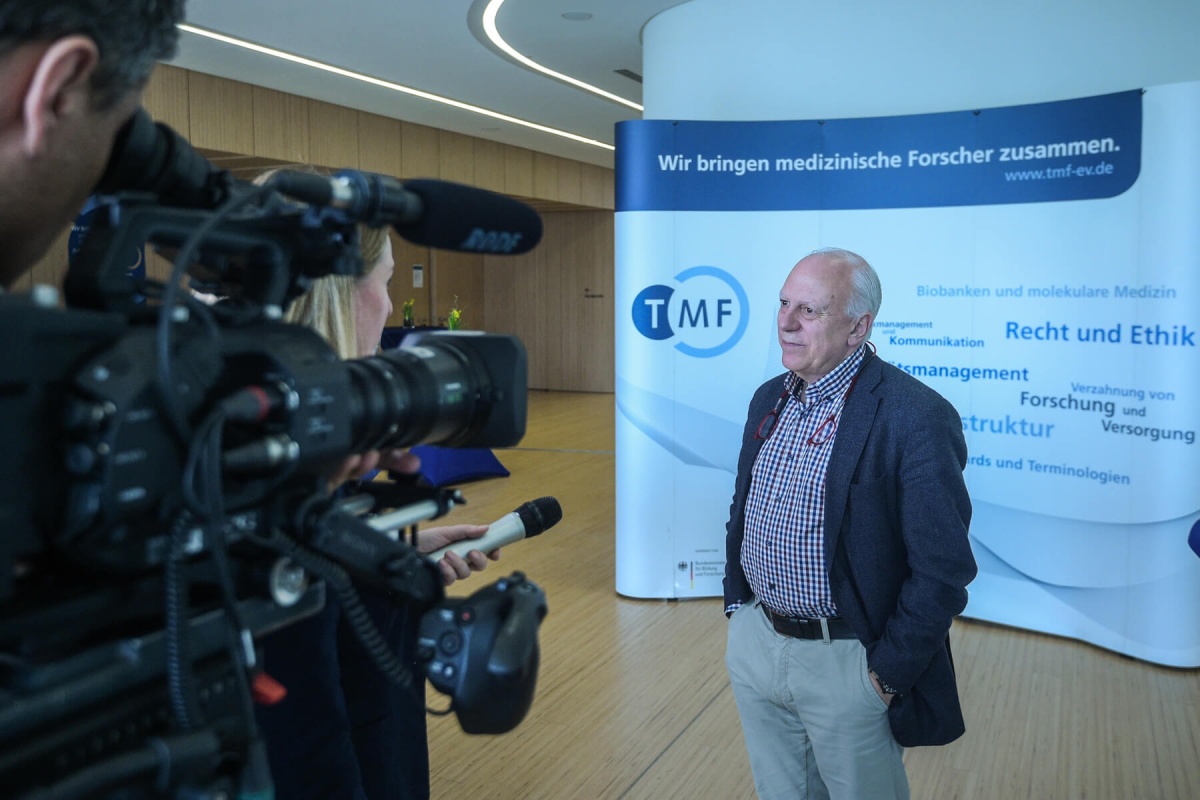
© TMF e.V.
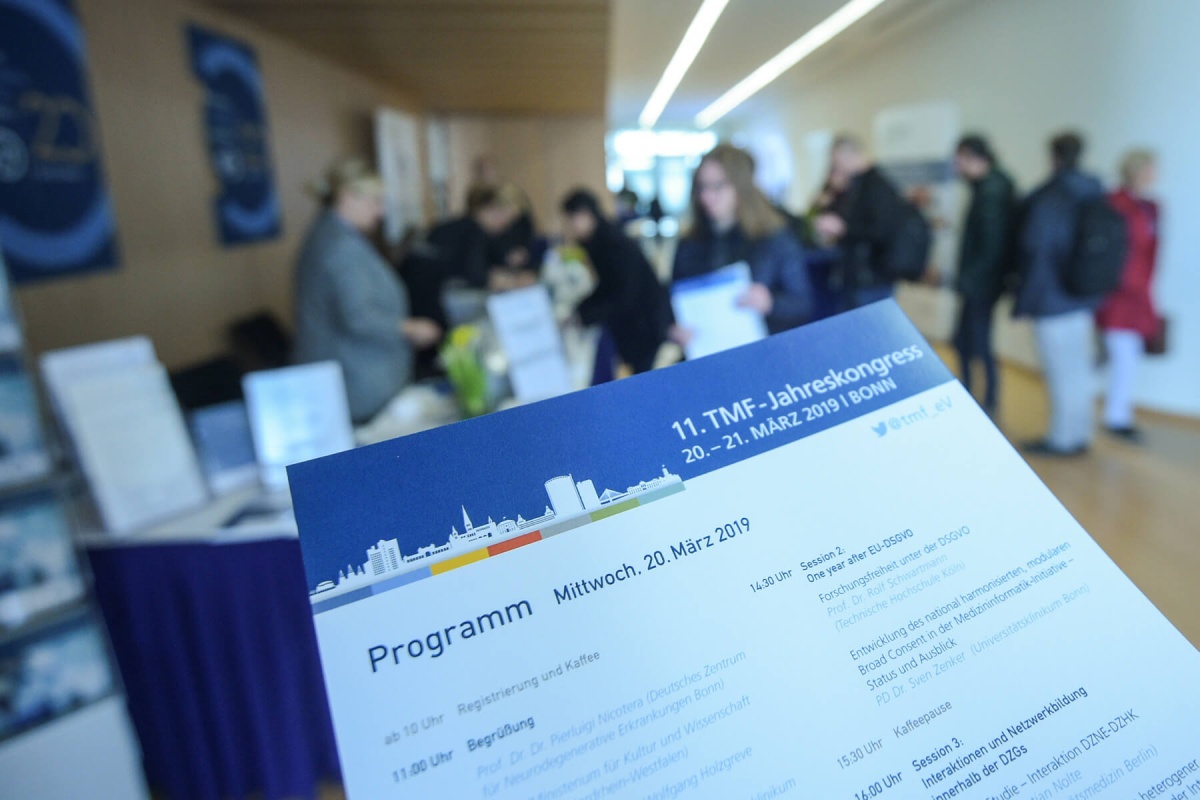
© TMF e.V.
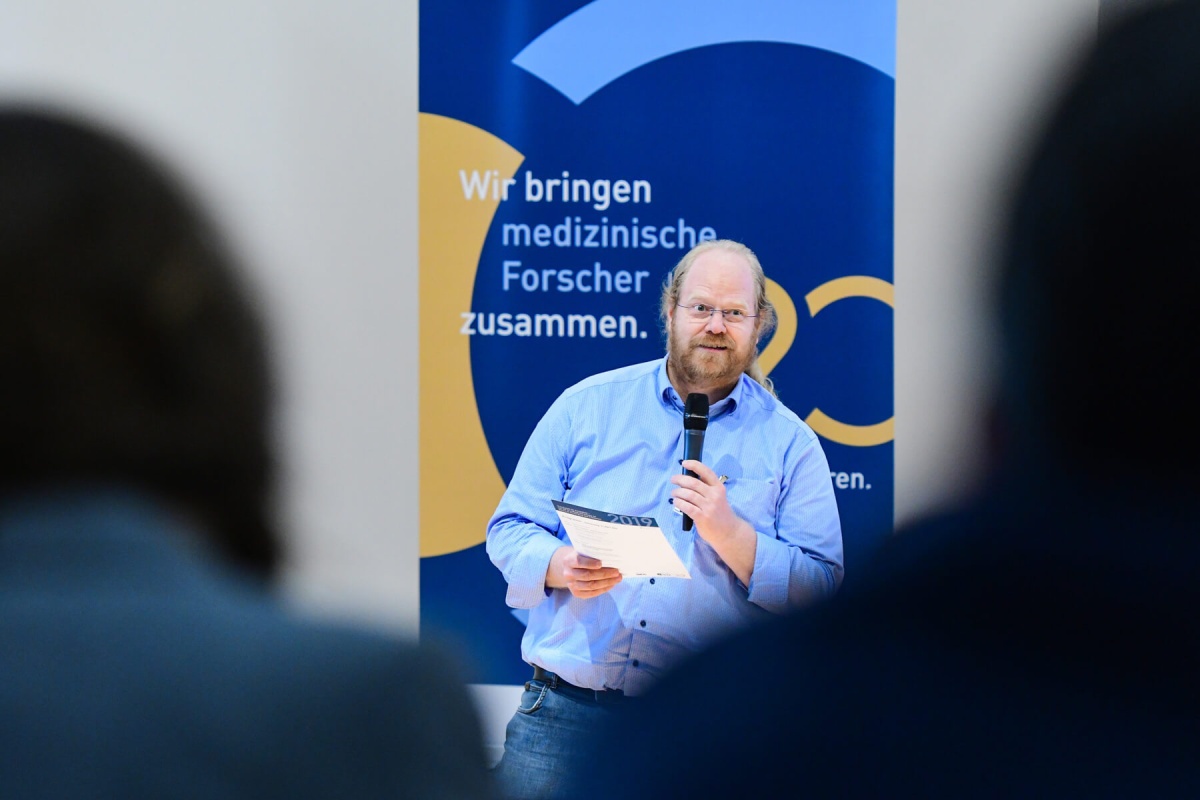
© TMF e.V.
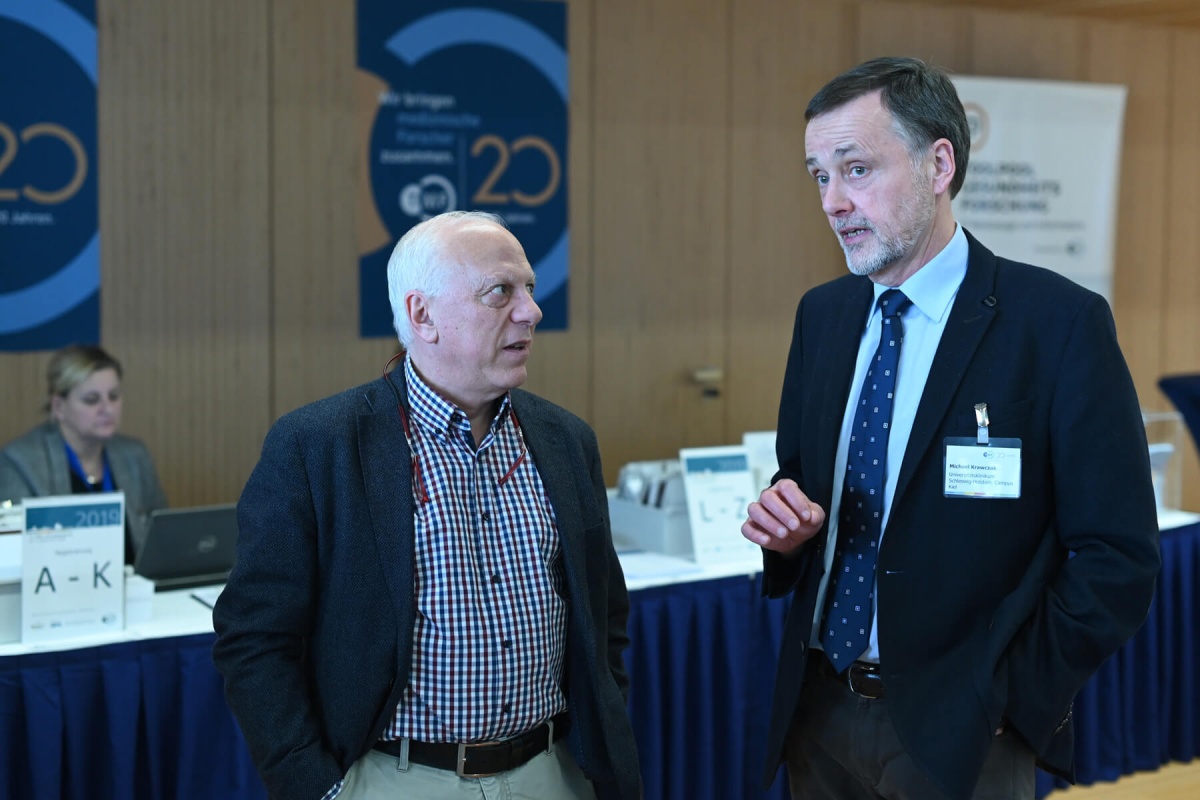
© TMF e.V.
Downloads [in German]
